List Of Famous Spanish People on:
[Wikipedia]
[Google]
[Amazon]
This is a list, in alphabetical order within categories, of notable



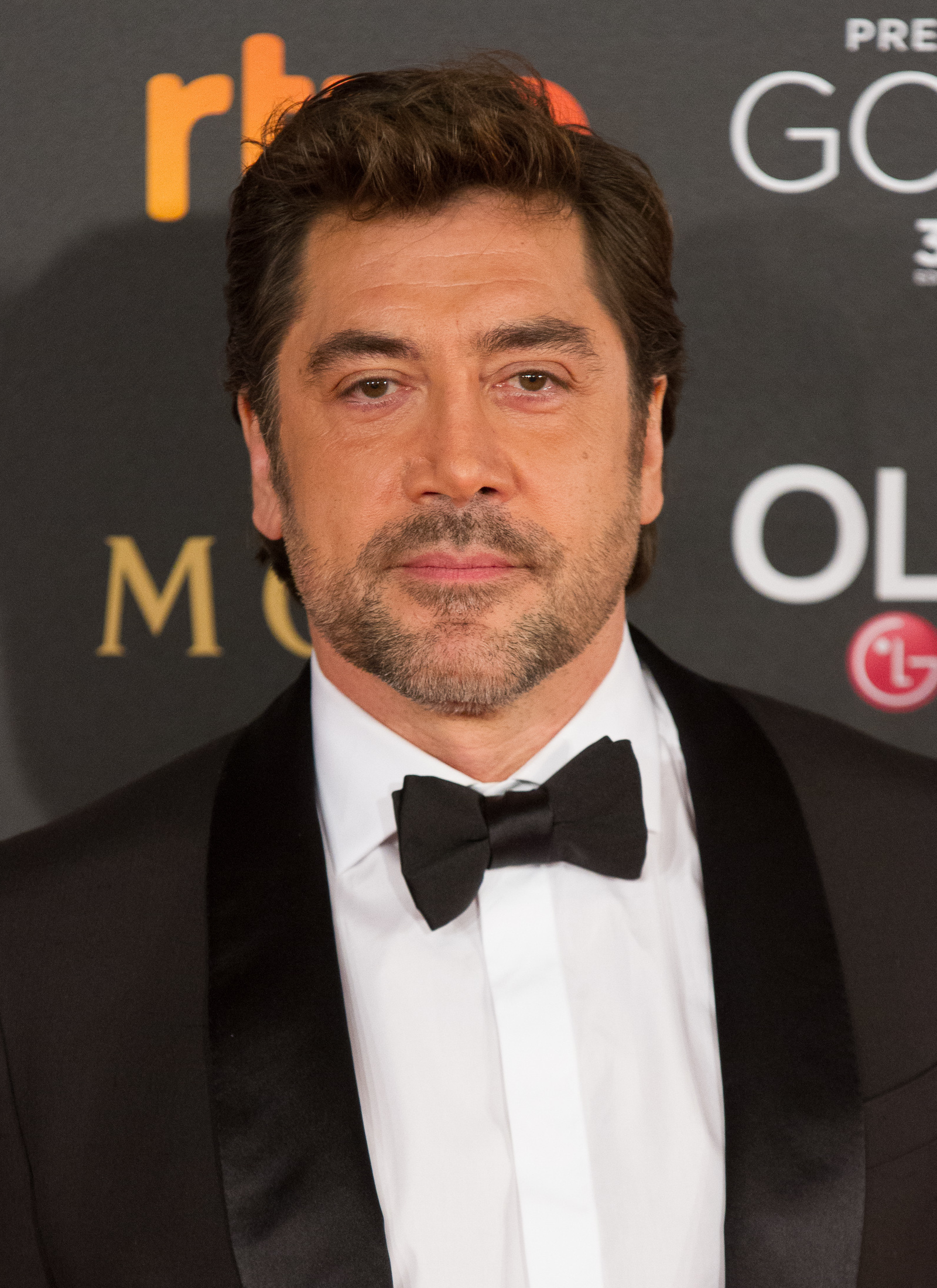
 * Victoria Abril (born 1957)
* Elena Anaya (born 1975)
* Antonio Banderas (born 1960)
* Javier Bardem (born 1969)
* Pilar Bardem (1939–2021)
* Amparo Baró (1937–2015)
* Claudia Bassols (born 1979)
*
* Victoria Abril (born 1957)
* Elena Anaya (born 1975)
* Antonio Banderas (born 1960)
* Javier Bardem (born 1969)
* Pilar Bardem (1939–2021)
* Amparo Baró (1937–2015)
* Claudia Bassols (born 1979)
*


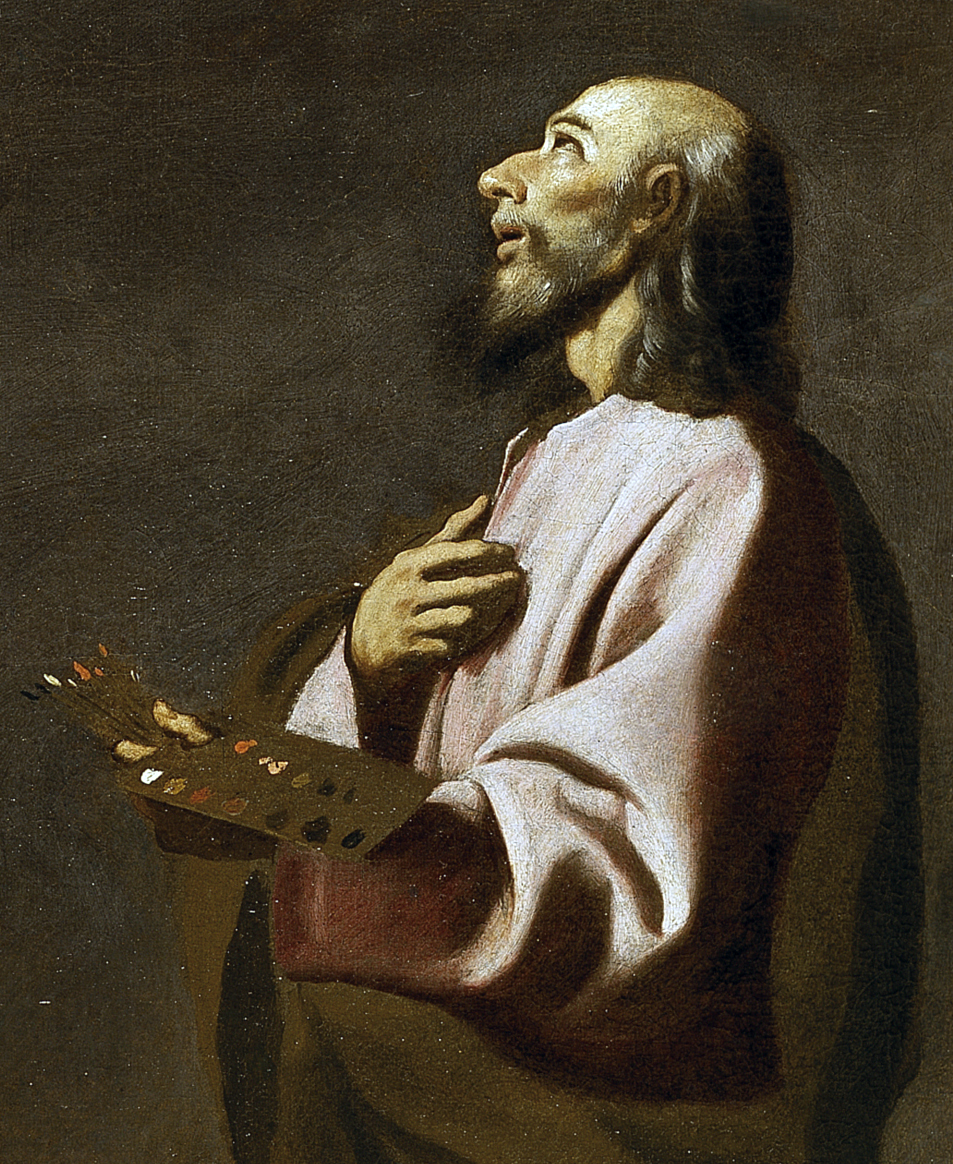




 * David Aja (born 1977), comics artist
* Leonardo Alenza (1807–1845), Romantic painter
* Hermenegildo Anglada (1871–1959),
* David Aja (born 1977), comics artist
* Leonardo Alenza (1807–1845), Romantic painter
* Hermenegildo Anglada (1871–1959),
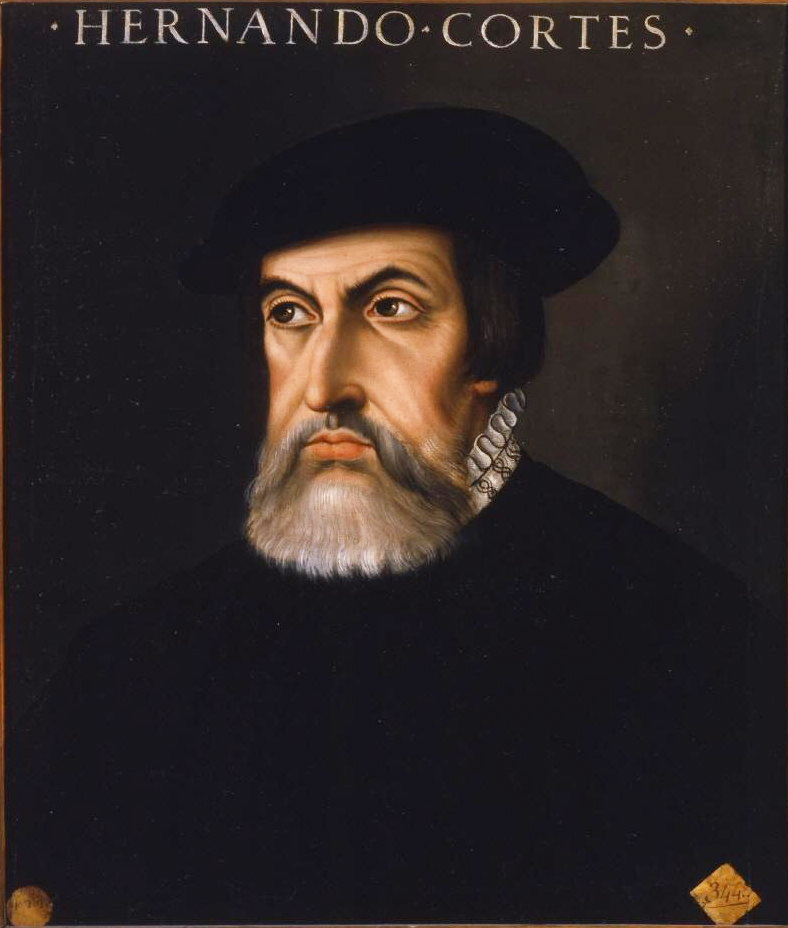

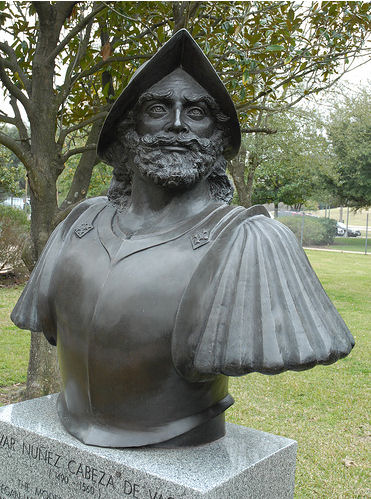 * Lope de Aguirre (1511–1561), soldier and adventurer, explored the Amazon River looking for El Dorado
* Diego de Almagro (1475–1538), explorer and conquistador, first European in Chile
* Luis de Moscoso Alvarado (1505–1551), explorer and conquistador.
* Juan Bautista de Anza (1736–1788), soldier and explorer, founded San Francisco, California
*
* Lope de Aguirre (1511–1561), soldier and adventurer, explored the Amazon River looking for El Dorado
* Diego de Almagro (1475–1538), explorer and conquistador, first European in Chile
* Luis de Moscoso Alvarado (1505–1551), explorer and conquistador.
* Juan Bautista de Anza (1736–1788), soldier and explorer, founded San Francisco, California
*

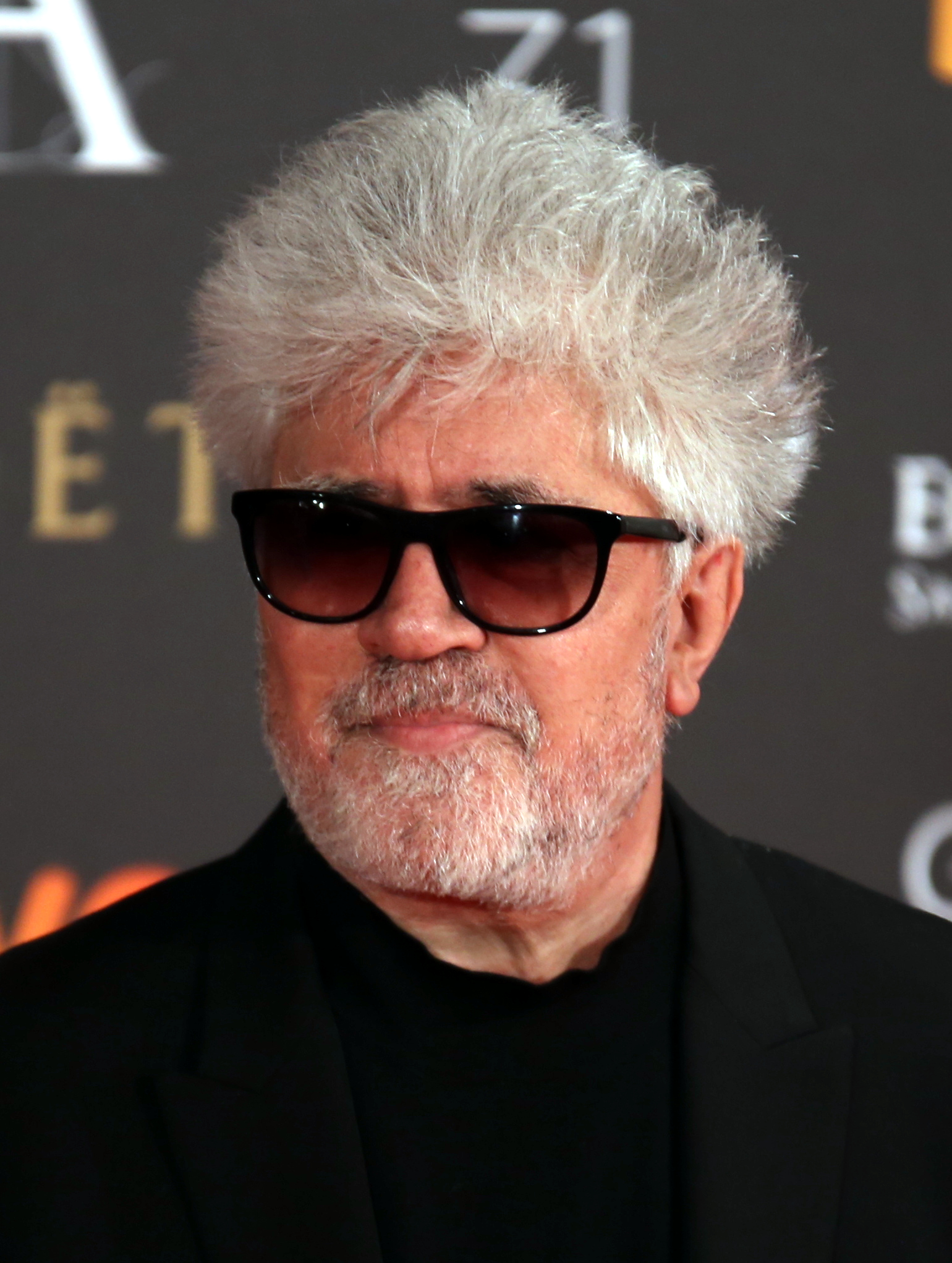

 * Pedro Almodóvar (born 1949)
* Alejandro Amenábar (born 1972)
* Montxo Armendáriz (born 1949)
* Carlos Atanes (born 1971)
* Juanma Bajo Ulloa (born 1967)
* Jaume Balagueró (born 1968)
* Juan Antonio Bardem (1922–2002)
* Juan Antonio Bayona (born 1975)
* Icíar Bollaín (born 1967)
* José Luis Borau (1929–2012)
* Luis Buñuel (1900–1983)
* Mario Camus (1935–2021)
* Segundo de Chomón (1871–1929)
* Isabel Coixet (born 1962)
* Agustín Díaz Yanes (born 1950)
* Víctor Erice (born 1940)
* Fernando Fernán Gómez (1921–2007)
* Jesús Franco (1930–2013)
* José Luis Garci (born 1944)
* Luis García Berlanga (1921–2010)
* Manuel Gutiérrez Aragón (born 1942)
* Álex de la Iglesia (born 1965)
* Fernando León de Aranoa (born 1968)
* Bigas Luna (1946–2013)
* Julio Médem (born 1958)
* Pilar Miró (1940–1997)
* Paul Naschy (1934–2009)
* Amando de Ossorio (1918–2001)
* Ventura Pons (born 1945)
* José Luis Sáenz de Heredia (1911–1992)
* Carlos Saura (born 1932)
* Santiago Segura (born 1965)
* David Trueba (born 1969)
* Fernando Trueba (born 1955)
* Agustí Villaronga (born 1953)
* Benito Zambrano (born 1964)
* Lydia Zimmermann (born 1966)
* Iván Zulueta (1943–2009)
* Pedro Almodóvar (born 1949)
* Alejandro Amenábar (born 1972)
* Montxo Armendáriz (born 1949)
* Carlos Atanes (born 1971)
* Juanma Bajo Ulloa (born 1967)
* Jaume Balagueró (born 1968)
* Juan Antonio Bardem (1922–2002)
* Juan Antonio Bayona (born 1975)
* Icíar Bollaín (born 1967)
* José Luis Borau (1929–2012)
* Luis Buñuel (1900–1983)
* Mario Camus (1935–2021)
* Segundo de Chomón (1871–1929)
* Isabel Coixet (born 1962)
* Agustín Díaz Yanes (born 1950)
* Víctor Erice (born 1940)
* Fernando Fernán Gómez (1921–2007)
* Jesús Franco (1930–2013)
* José Luis Garci (born 1944)
* Luis García Berlanga (1921–2010)
* Manuel Gutiérrez Aragón (born 1942)
* Álex de la Iglesia (born 1965)
* Fernando León de Aranoa (born 1968)
* Bigas Luna (1946–2013)
* Julio Médem (born 1958)
* Pilar Miró (1940–1997)
* Paul Naschy (1934–2009)
* Amando de Ossorio (1918–2001)
* Ventura Pons (born 1945)
* José Luis Sáenz de Heredia (1911–1992)
* Carlos Saura (born 1932)
* Santiago Segura (born 1965)
* David Trueba (born 1969)
* Fernando Trueba (born 1955)
* Agustí Villaronga (born 1953)
* Benito Zambrano (born 1964)
* Lydia Zimmermann (born 1966)
* Iván Zulueta (1943–2009)
 *'' Pelayo of Asturias'' (690–737), founding king of the
*'' Pelayo of Asturias'' (690–737), founding king of the
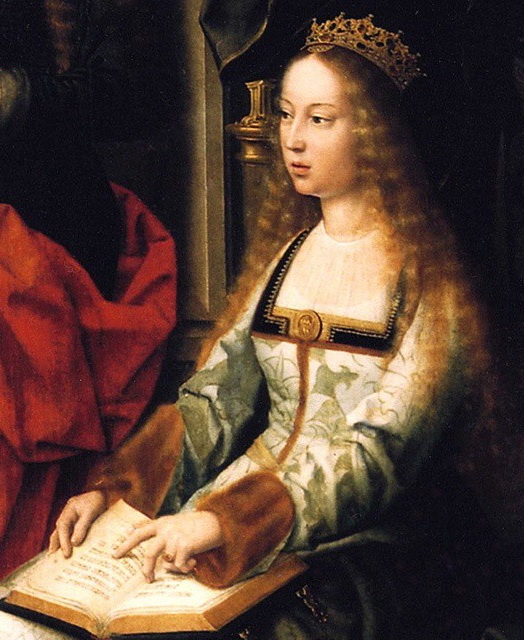

 * Isabella of Castile, ''the Catholic'' (1451–1504), Queen of Castile and León (1474–1504, with Ferdinand)
* Ferdinand II, '' the Catholic'' (1452–1516),
* Isabella of Castile, ''the Catholic'' (1451–1504), Queen of Castile and León (1474–1504, with Ferdinand)
* Ferdinand II, '' the Catholic'' (1452–1516),

 * Leopoldo O'Donnell, Duke of Tetuan (1809–1867), general and Prime Minister (1856; 1858–1863; 1864–1866)
* Juan Prim (1814–1870), general, liberal leader, revolutionary and statesman
* Antonio Cánovas del Castillo (1828–1897),
* Leopoldo O'Donnell, Duke of Tetuan (1809–1867), general and Prime Minister (1856; 1858–1863; 1864–1866)
* Juan Prim (1814–1870), general, liberal leader, revolutionary and statesman
* Antonio Cánovas del Castillo (1828–1897),

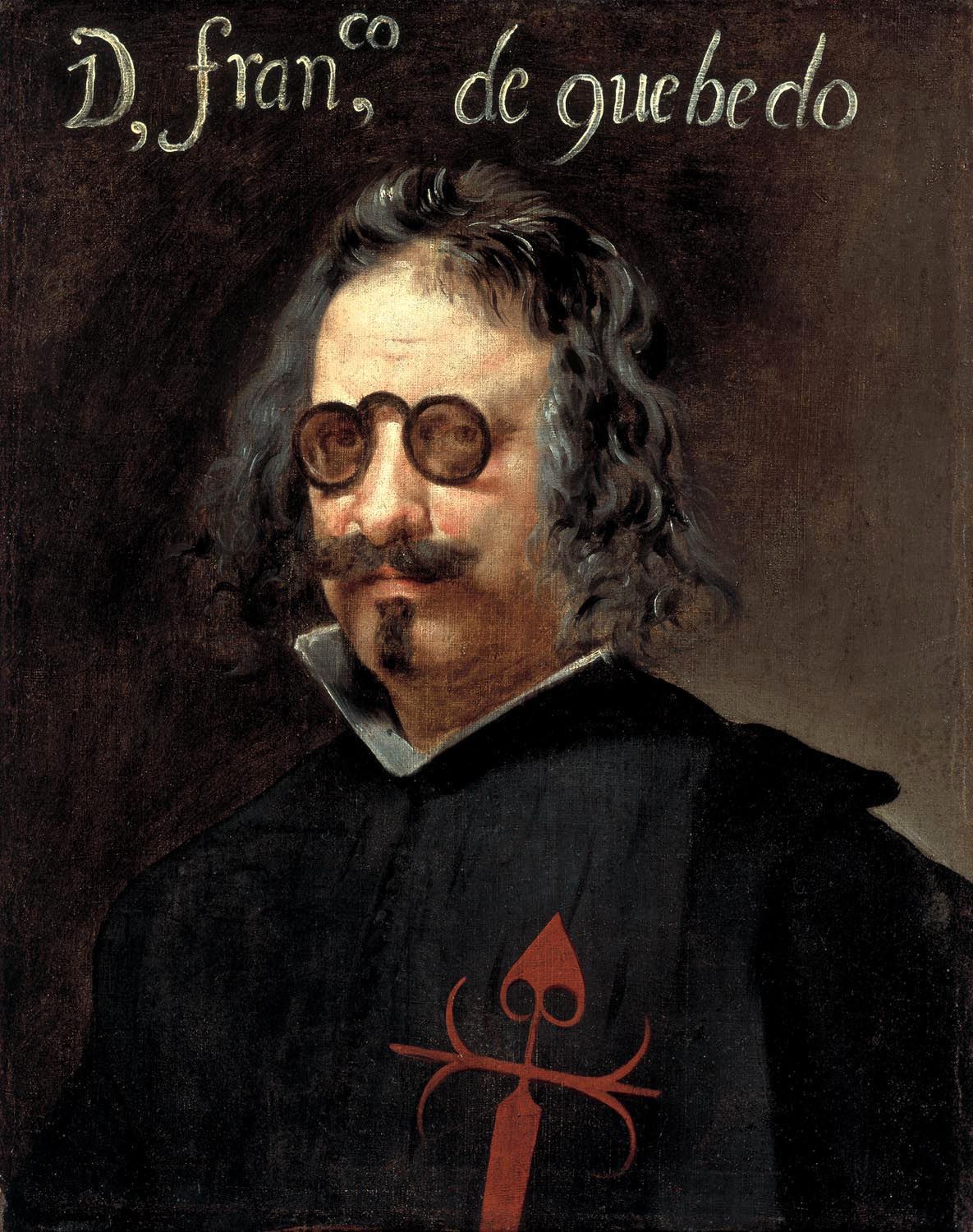
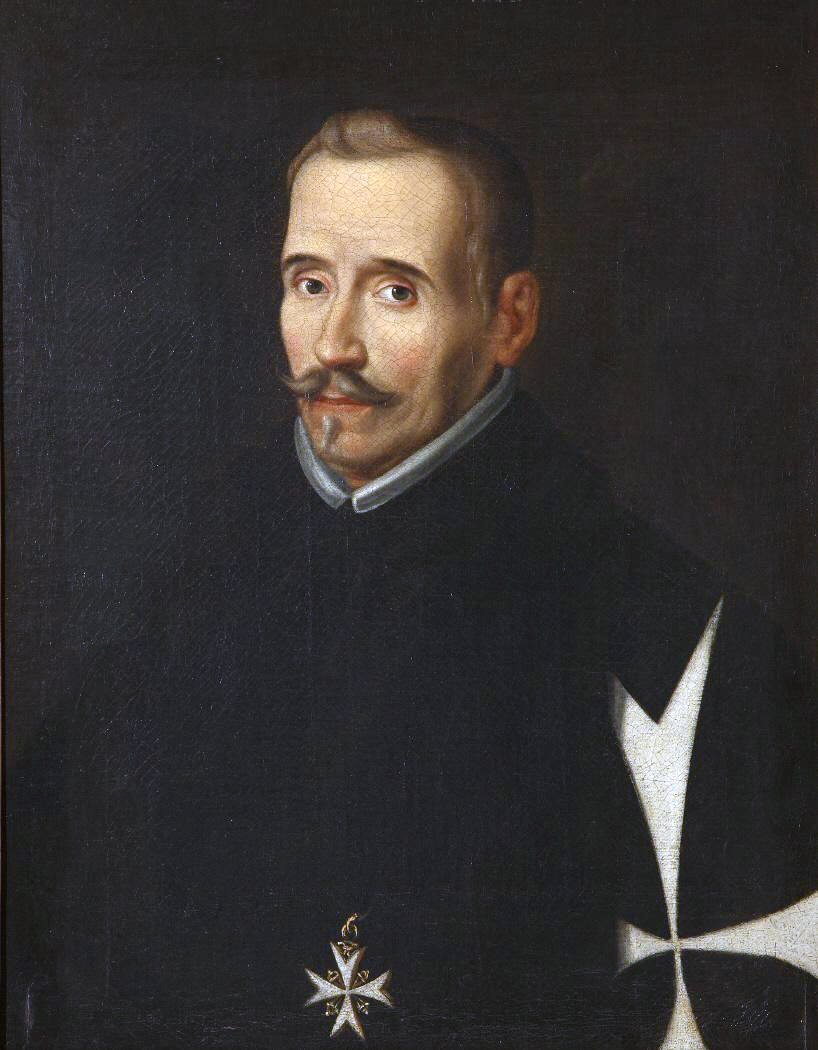
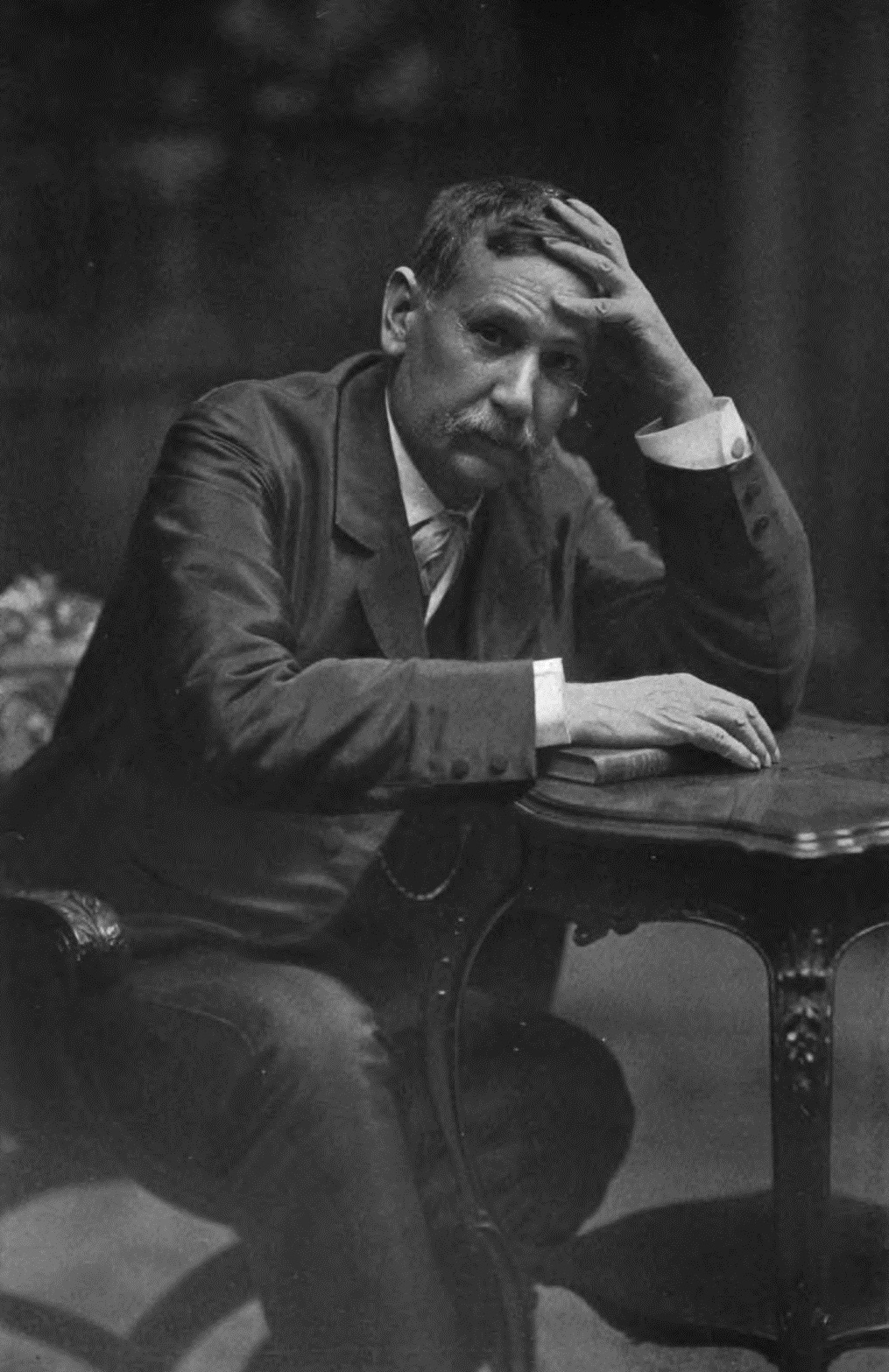
 * Rafael Alberti (1902–1999), poet,
* Rafael Alberti (1902–1999), poet,

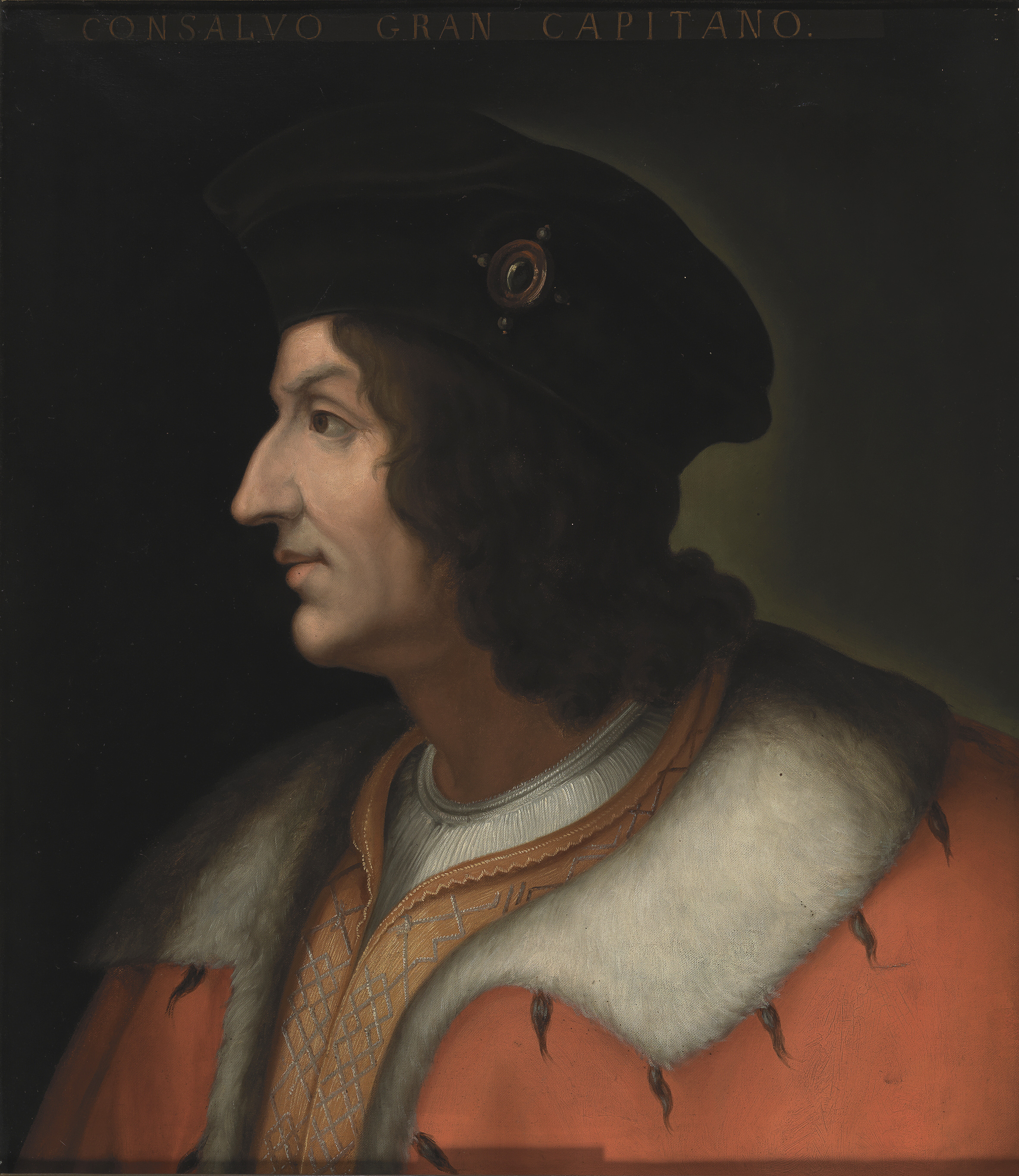

 * 3rd Duke of Alba (Fernando Álvarez de Toledo, 1507–1582), general and governor of the
* 3rd Duke of Alba (Fernando Álvarez de Toledo, 1507–1582), general and governor of the
 * Esther Cañadas (born 1977)
* Jon Kortajarena (born 1985)
* Sheila Marquez (born 1985)
* Judit Mascó (born 1969)
* Marina Pérez (born 1984)
* Inés Sastre (born 1973)
* Esther Cañadas (born 1977)
* Jon Kortajarena (born 1985)
* Sheila Marquez (born 1985)
* Judit Mascó (born 1969)
* Marina Pérez (born 1984)
* Inés Sastre (born 1973)

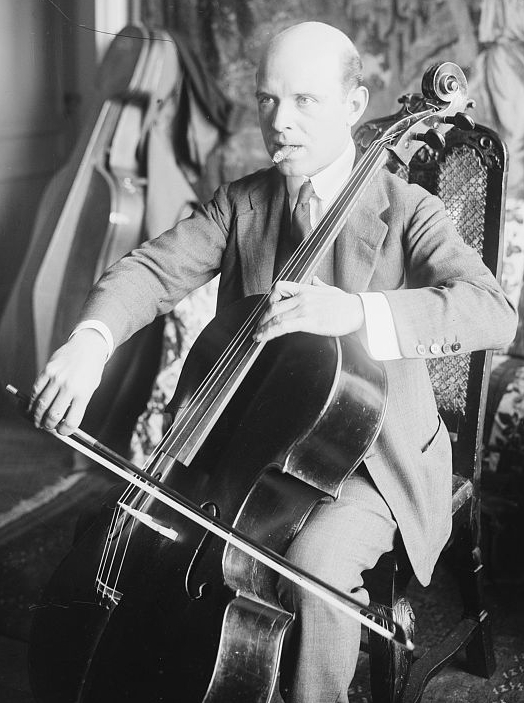 * Isaac Albéniz (1860–1909), composer
* Salvador Bacarisse (1898–1963), composer
* Pablo Casals (1876–1973), cello player and conductor
* Manuel de Falla (1876–1946), composer
* Rafael Frühbeck de Burgos (1933–2014), conductor
* Enrique Granados (1867–1916), composer
* Enrique Jordá (1911–1996), conductor, music director of the San Francisco Symphony (1954–1963)
* Francisco Lara (born 1968), composer and conductor
* Alicia de Larrocha (1923–2009), pianist
* Vicente Martín y Soler (1754–1806), composer
* Sofía Noel (1915–2011), Belgian-born soprano and ethnomusicologist
* Luis de Pablo (1930–2021), composer
* Blas de Laserna, composer
* María Teresa Oller (1920-2018), composer and folklorist
* Eugenia Osterberger (1852–1932), Galician pianist and composer
* Joaquín Rodrigo (1901–1999), composer and pianist, known for his ''
* Isaac Albéniz (1860–1909), composer
* Salvador Bacarisse (1898–1963), composer
* Pablo Casals (1876–1973), cello player and conductor
* Manuel de Falla (1876–1946), composer
* Rafael Frühbeck de Burgos (1933–2014), conductor
* Enrique Granados (1867–1916), composer
* Enrique Jordá (1911–1996), conductor, music director of the San Francisco Symphony (1954–1963)
* Francisco Lara (born 1968), composer and conductor
* Alicia de Larrocha (1923–2009), pianist
* Vicente Martín y Soler (1754–1806), composer
* Sofía Noel (1915–2011), Belgian-born soprano and ethnomusicologist
* Luis de Pablo (1930–2021), composer
* Blas de Laserna, composer
* María Teresa Oller (1920-2018), composer and folklorist
* Eugenia Osterberger (1852–1932), Galician pianist and composer
* Joaquín Rodrigo (1901–1999), composer and pianist, known for his ''

 * Victoria de los Ángeles (1923–2005), soprano
* Maite Arruabarrena (born 1964), mezzo-soprano
* Teresa Berganza (1935–2022), mezzo-soprano
* Montserrat Caballé (1933–2018), soprano
* Avelina Carrera (1871–1939), soprano from Barcelona
* Nancy Fabiola Herrera (born 19??), mezzo-soprano
* José Carreras (born 1946), one of
* Victoria de los Ángeles (1923–2005), soprano
* Maite Arruabarrena (born 1964), mezzo-soprano
* Teresa Berganza (1935–2022), mezzo-soprano
* Montserrat Caballé (1933–2018), soprano
* Avelina Carrera (1871–1939), soprano from Barcelona
* Nancy Fabiola Herrera (born 19??), mezzo-soprano
* José Carreras (born 1946), one of

 *
*
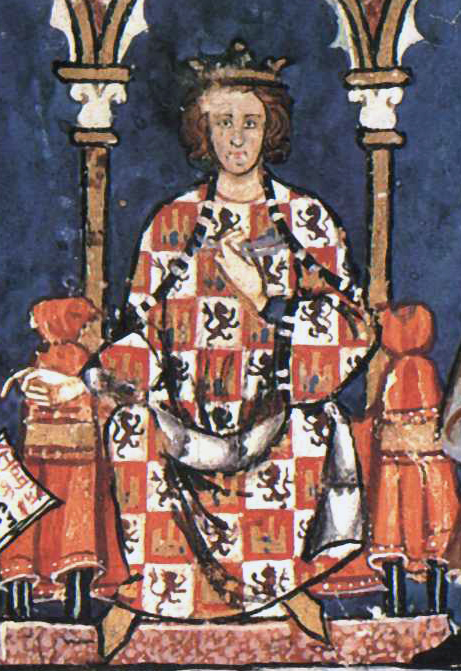

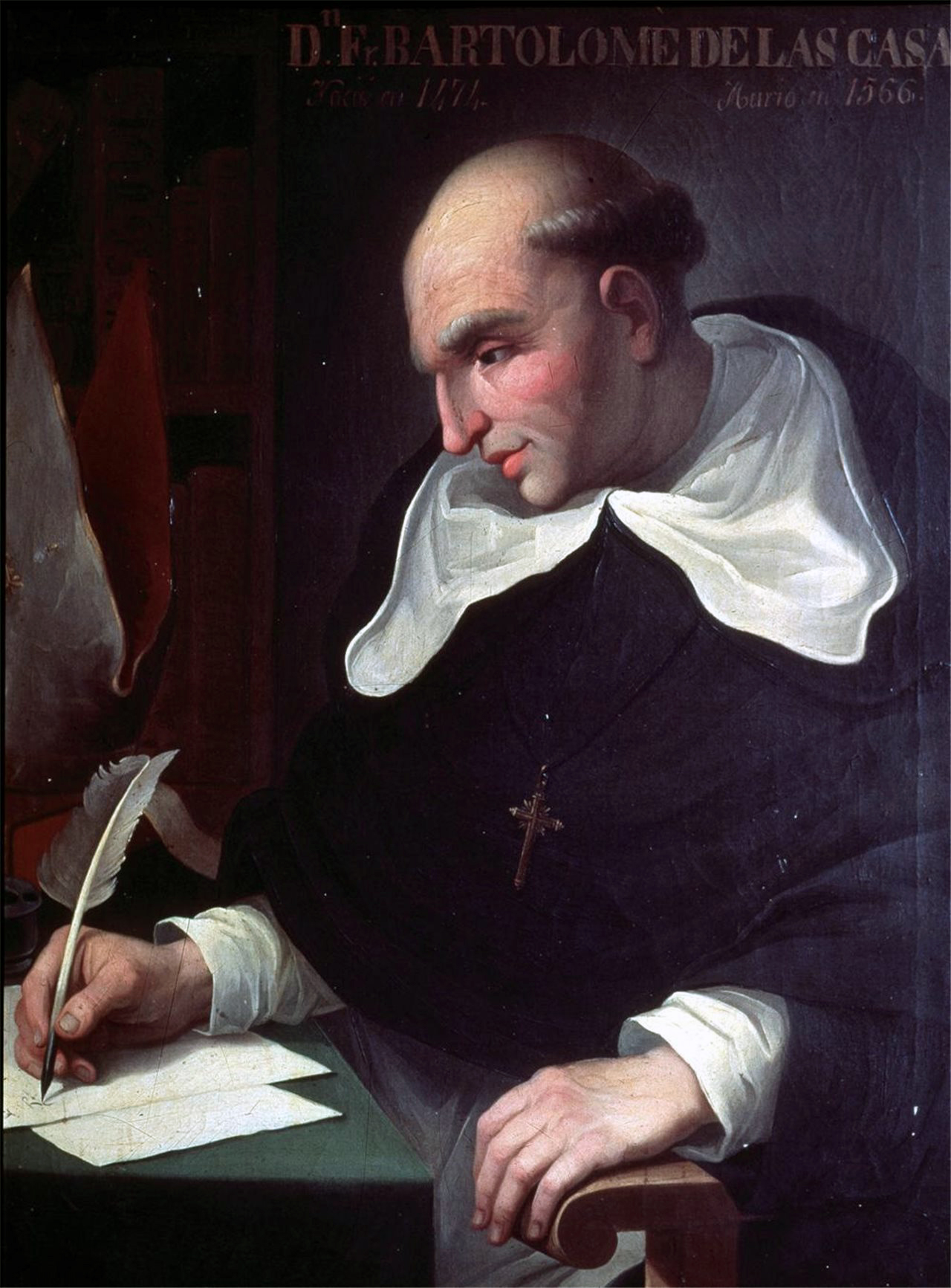
 *'' Alfonso X of Castile'' (1221–1284), "El Sabio" ("The Wise")
* Francisco de Enzinas (1518–1552), humanist and translator of the
*'' Alfonso X of Castile'' (1221–1284), "El Sabio" ("The Wise")
* Francisco de Enzinas (1518–1552), humanist and translator of the
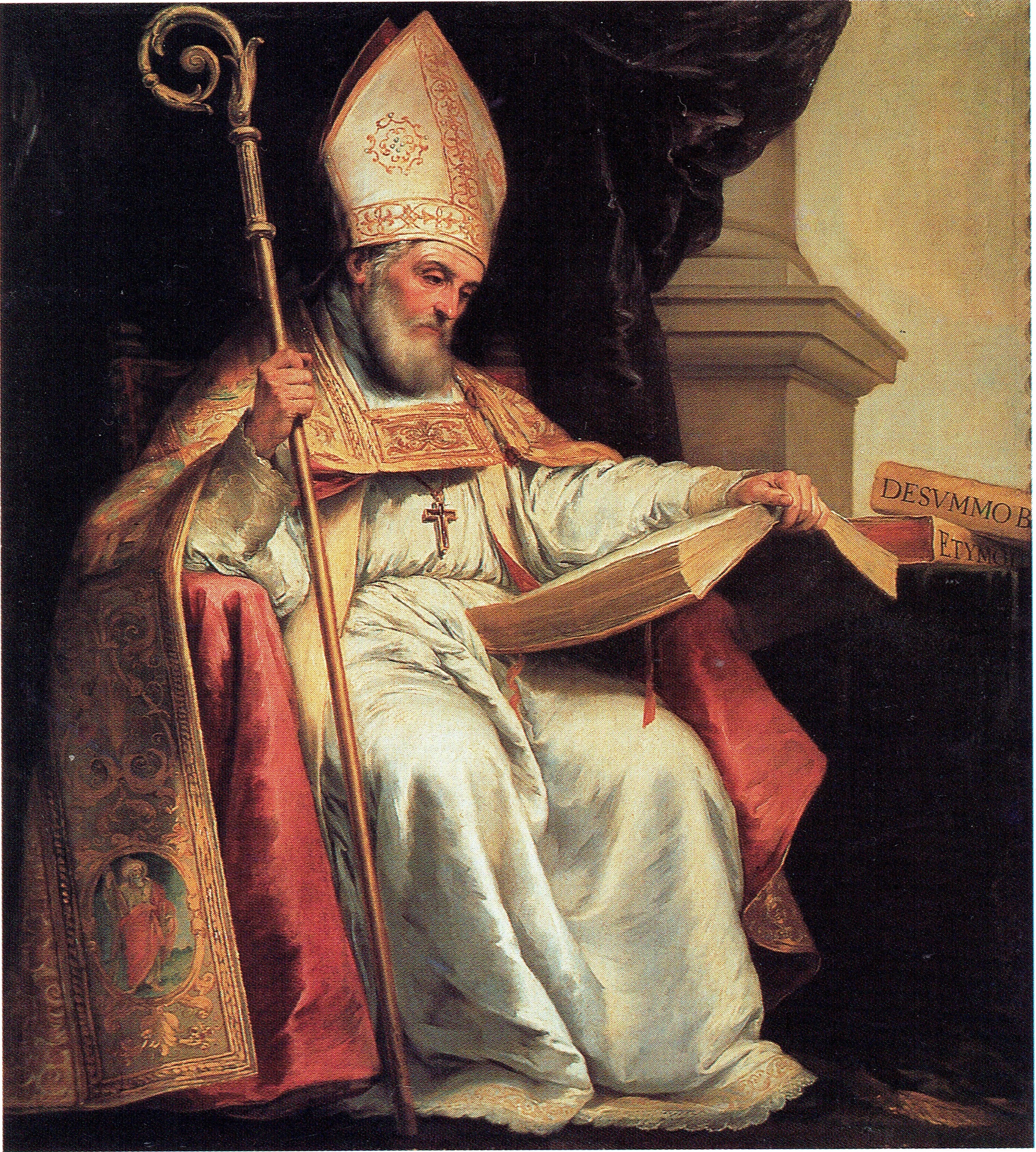
 * Francisco Jiménez de Cisneros (1436–1517), religious reformer, bishop, cardinal and statesman
* St Dominic of Guzmán (1170–1221), founder of the
* Francisco Jiménez de Cisneros (1436–1517), religious reformer, bishop, cardinal and statesman
* St Dominic of Guzmán (1170–1221), founder of the


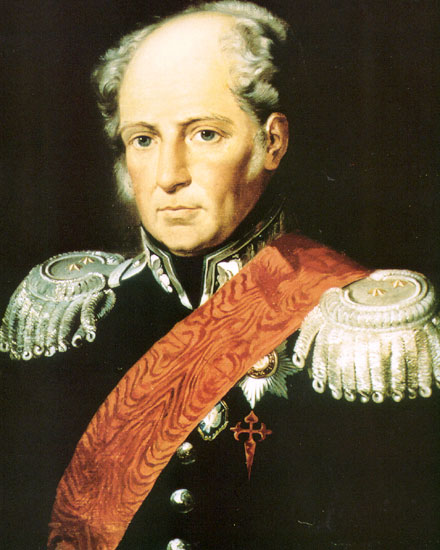


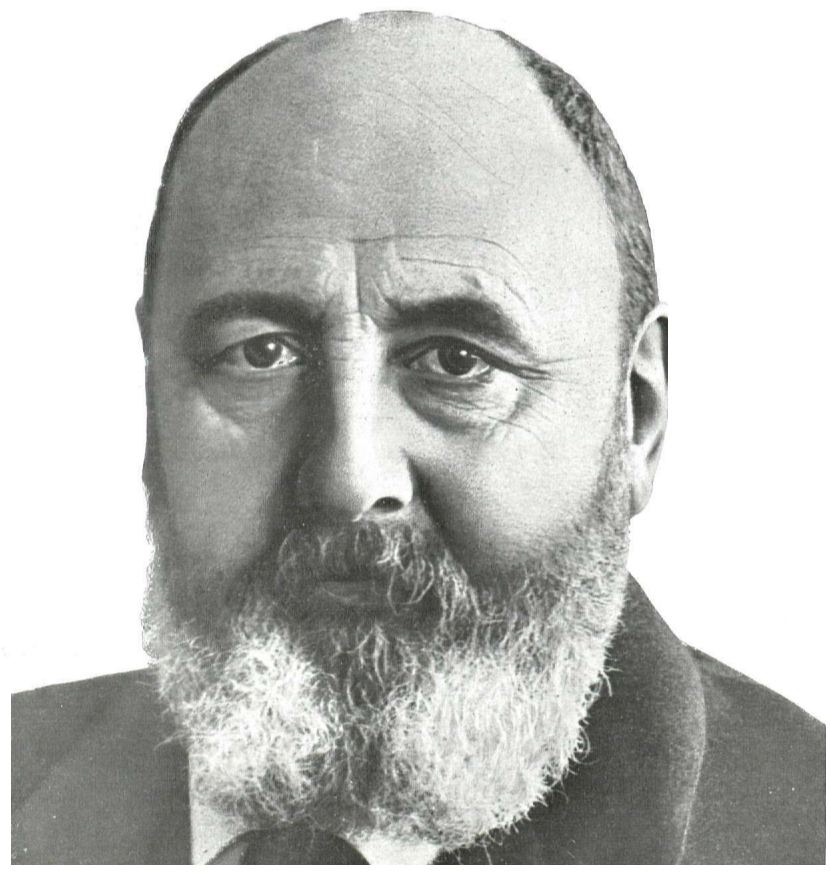

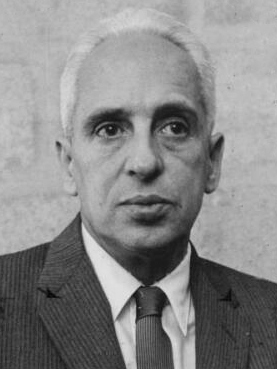 * José de Acosta (1540–1600), one of the first naturalists and
* José de Acosta (1540–1600), one of the first naturalists and
 * Gurutzi Arregi (1936-2020), Basque ethnographer
* Martín de Azpilicueta (1492–1586), economist, member of the
* Gurutzi Arregi (1936-2020), Basque ethnographer
* Martín de Azpilicueta (1492–1586), economist, member of the
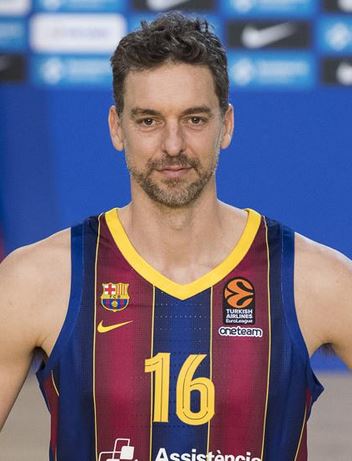 * Antonio Díaz-Miguel (1933–2000), coach, enshrined in the Basketball Hall of Fame in 1997
* Pau Gasol (born 1980),
* Antonio Díaz-Miguel (1933–2000), coach, enshrined in the Basketball Hall of Fame in 1997
* Pau Gasol (born 1980),
 * Federico Martín Bahamontes (born 1928), 1959 Tour de France winner
* Juan José Cobo (born 1981), 2011 Vuelta a España winner
* Alberto Contador (born 1982), three-time
* Federico Martín Bahamontes (born 1928), 1959 Tour de France winner
* Juan José Cobo (born 1981), 2011 Vuelta a España winner
* Alberto Contador (born 1982), three-time
 *Iker Casillas, Iker Casillas (born 1981), goalkeeper and Real Madrid C.F., Real Madrid; captain of Spain's team that won UEFA Euro 2008, the 2010 FIFA World Cup and Euro 2012
*Francisco Gento, Francisco Gento (1933–2022), Real Madrid player; winner of six UEFA Champions League
*Raúl (footballer), Raúl González (born 1977), first player to reach 50 goals in UEFA Champions League
*Xavi, Xavi Hernández (born 1980), midfielder and FC Barcelona player; UEFA Euro 2008 MVP
*Andrés Iniesta, Andrés Iniesta (born 1984), midfielder and FC Barcelona player; scored the winning goal at the 2010 FIFA World Cup Final; UEFA Euro 2012 MVP
*Alexia Putellas, Alexia Putellas (born 1994), FC Barcelona Femení midfielder and two-time Ballon d'Or Féminin winner
*Fernando Torres, Fernando Torres (born 1984), striker and Chelsea F.C., Chelsea player; scored the winning goal at the Euro 2008 Final; winner of Golden Boot at Euro 2012
*David Villa, David Villa (born 1981), striker and FC Barcelona player; Spain's all-time top goalscorer
*Andoni Zubizarreta, Andoni Zubizarreta (born 1961), Spanish international
*Gerard Pique (born 1979), plays for the club FC Barcelona, and is a defender
*Iker Casillas, Iker Casillas (born 1981), goalkeeper and Real Madrid C.F., Real Madrid; captain of Spain's team that won UEFA Euro 2008, the 2010 FIFA World Cup and Euro 2012
*Francisco Gento, Francisco Gento (1933–2022), Real Madrid player; winner of six UEFA Champions League
*Raúl (footballer), Raúl González (born 1977), first player to reach 50 goals in UEFA Champions League
*Xavi, Xavi Hernández (born 1980), midfielder and FC Barcelona player; UEFA Euro 2008 MVP
*Andrés Iniesta, Andrés Iniesta (born 1984), midfielder and FC Barcelona player; scored the winning goal at the 2010 FIFA World Cup Final; UEFA Euro 2012 MVP
*Alexia Putellas, Alexia Putellas (born 1994), FC Barcelona Femení midfielder and two-time Ballon d'Or Féminin winner
*Fernando Torres, Fernando Torres (born 1984), striker and Chelsea F.C., Chelsea player; scored the winning goal at the Euro 2008 Final; winner of Golden Boot at Euro 2012
*David Villa, David Villa (born 1981), striker and FC Barcelona player; Spain's all-time top goalscorer
*Andoni Zubizarreta, Andoni Zubizarreta (born 1961), Spanish international
*Gerard Pique (born 1979), plays for the club FC Barcelona, and is a defender
 *Fernando Alonso, Fernando Alonso (born 1981), 2005 and 2006 Formula One List of Formula One World Drivers' Champions, World Champion
*Jaime Alguersuari, Jaime Alguersuari (born 1990), 2008 British Formula Three champion
*Álvaro Bautista, Álvaro Bautista (born 1984), motorcycle racing raider, 125cc champion of the World in 2006
*Carlos Checa, Carlos Checa (born 1972), Grand Prix motorcycle racing, GP motorcycle racing rider and List of Superbike World champions, Superbike World Champion in 2011
*Marc Coma, Marc Coma (born 1976), won the Dakar Rally in 2006
*Àlex Crivillé, Àlex Crivillé (born 1970), 500cc GP motorcycle racing List of Grand Prix motorcycle racing World Champions, World Champion in 1999
*Marc Gené, Marc Gené (born 1974), Formula One driver
*Jorge Lorenzo, Jorge Lorenzo (born 1987), 2006 and 2007 Grand Prix motorcycle racing, GP motorcycle racing 250cc World Champion, 2010, 2012, and 2015 MotoGP World Champion
*Marc Márquez, Marc Márquez (born 1993), Grand Prix motorcycle racing, Grand Prix motorcycle road racing, road racer, and is the 2013, 2014, 2016 and 2017 Moto GP World Champion
*Jorge Martínez (motorcyclist), Jorge Martínez Aspar (born 1962), GP motorcycle racing rider, four-time World Champion
*Pedro de la Rosa, Pedro Martínez de la Rosa (born 1971), Formula One driver
*Ángel Nieto, Ángel Nieto (1947–2017), GP motorcycle racing rider, 12+1 times World Champion
*Daniel Pedrosa, Daniel Pedrosa (born 1985), youngest GP motorcycle racing World Champion of 125cc and 250cc
*Carlos Sainz Sr., Carlos Sainz (born 1962), 1990 and 1992 World Rally Championship, World Rally Champion and 2010 Dakar Rally winner
*Carlos Sainz, Jr., Carlos Sainz, Jr. (born 1994), Formula One driver
*Fernando Alonso, Fernando Alonso (born 1981), 2005 and 2006 Formula One List of Formula One World Drivers' Champions, World Champion
*Jaime Alguersuari, Jaime Alguersuari (born 1990), 2008 British Formula Three champion
*Álvaro Bautista, Álvaro Bautista (born 1984), motorcycle racing raider, 125cc champion of the World in 2006
*Carlos Checa, Carlos Checa (born 1972), Grand Prix motorcycle racing, GP motorcycle racing rider and List of Superbike World champions, Superbike World Champion in 2011
*Marc Coma, Marc Coma (born 1976), won the Dakar Rally in 2006
*Àlex Crivillé, Àlex Crivillé (born 1970), 500cc GP motorcycle racing List of Grand Prix motorcycle racing World Champions, World Champion in 1999
*Marc Gené, Marc Gené (born 1974), Formula One driver
*Jorge Lorenzo, Jorge Lorenzo (born 1987), 2006 and 2007 Grand Prix motorcycle racing, GP motorcycle racing 250cc World Champion, 2010, 2012, and 2015 MotoGP World Champion
*Marc Márquez, Marc Márquez (born 1993), Grand Prix motorcycle racing, Grand Prix motorcycle road racing, road racer, and is the 2013, 2014, 2016 and 2017 Moto GP World Champion
*Jorge Martínez (motorcyclist), Jorge Martínez Aspar (born 1962), GP motorcycle racing rider, four-time World Champion
*Pedro de la Rosa, Pedro Martínez de la Rosa (born 1971), Formula One driver
*Ángel Nieto, Ángel Nieto (1947–2017), GP motorcycle racing rider, 12+1 times World Champion
*Daniel Pedrosa, Daniel Pedrosa (born 1985), youngest GP motorcycle racing World Champion of 125cc and 250cc
*Carlos Sainz Sr., Carlos Sainz (born 1962), 1990 and 1992 World Rally Championship, World Rally Champion and 2010 Dakar Rally winner
*Carlos Sainz, Jr., Carlos Sainz, Jr. (born 1994), Formula One driver
Famous Spanish peopleTop 15 most famous Spanish people
{{DEFAULTSORT:Spaniards Lists of Spanish people,
hispanic
The term ''Hispanic'' ( es, hispano) refers to people, cultures, or countries related to Spain, the Spanish language, or Hispanidad.
The term commonly applies to countries with a cultural and historical link to Spain and to viceroyalties forme ...
people of Spanish heritage and descent born and raised in Spain, or of direct Spanish descent.
''Note: The same person may appear under several headings.''
Actors




 * Victoria Abril (born 1957)
* Elena Anaya (born 1975)
* Antonio Banderas (born 1960)
* Javier Bardem (born 1969)
* Pilar Bardem (1939–2021)
* Amparo Baró (1937–2015)
* Claudia Bassols (born 1979)
*
* Victoria Abril (born 1957)
* Elena Anaya (born 1975)
* Antonio Banderas (born 1960)
* Javier Bardem (born 1969)
* Pilar Bardem (1939–2021)
* Amparo Baró (1937–2015)
* Claudia Bassols (born 1979)
*Ana Belén
María del Pilar Cuesta Acosta (born 27 May 1951, Madrid), known professionally as Ana Belén, is a Spanish actress and singer.
Life/career
Born in 1951, Ana Belén is the oldest of three children. Her father was a cook in Hotel Palace, and ...
(born 1951)
* Àstrid Bergès-Frisbey (born 1986)
* Juan Diego Botto (born 1975)
* Javier Cámara (born 1967)
* Mario Casas (born 1986)
* Mark Consuelos (born 1970)
* Úrsula Corberó (born 1989)
* Penélope Cruz (born 1974)
* Gabino Diego (born 1966)
* Lola Dueñas (1908–1983)
* Ester Expósito (born 2000)
* Angelines Fernández (1922–1994)
* Bibiana Fernández (born 1954)
* Fernando Fernán Gómez (1921–2007)
* Alba Flores (born 1986)
* Elena Furiase (born 1988)
* Juan Luis Galiardo (1940–2012)
* Macarena García (born 1988)
* Sancho Gracia (1936–2012)
* Chus Lampreave (1930–2016)
* Alfredo Landa (1933–2013)
* Sergi López (born 1965)
* Carmen Maura (born 1945)
* Jordi Mollà (born 1968)
* Lina Morgan (1936–2015)
* Sara Montiel (1928–2013)
* Paul Naschy (1934–2009)
* Najwa Nimri (born 1972)
* Eduardo Noriega (born 1973)
* Elsa Pataky (born 1976)
* Fernando Rey (1917–1994)
* Fernando Sancho (1916–1990)
* Santiago Segura (born 1965)
* Luis Tosar (born 1971)
* María Valverde (born 1986)
* Concha Velasco (born 1939)
* Paz Vega (born 1976)
* Maribel Verdú (born 1970)
Artists







 * David Aja (born 1977), comics artist
* Leonardo Alenza (1807–1845), Romantic painter
* Hermenegildo Anglada (1871–1959),
* David Aja (born 1977), comics artist
* Leonardo Alenza (1807–1845), Romantic painter
* Hermenegildo Anglada (1871–1959), Catalan modernist
''Modernisme'' (, Catalan for "modernism"), also known as Catalan modernism and Catalan art nouveau, is the historiographic denomination given to an art and literature movement associated with the search of a new entitlement of Catalan cultu ...
painter
* Alonso Berruguete (c. 1488–1561), Spanish Renaissance
The Spanish Renaissance was a movement in Spain, emerging from the Italian Renaissance in Italy during the 14th century, that spread to Spain during the 15th and 16th centuries.
This new focus in art, literature,
quotes and science inspired ...
painter and sculptor
* Pedro Berruguete (c. 1450–1504), Spanish Renaissance painter
* Aureliano de Beruete (1845–1912), painter
* Felipe Bigarny (c. 1475–1542), Spanish Renaissance sculptor
* María Blanchard (1881–1932), Cubist
Cubism is an early-20th-century avant-garde art movement that revolutionized European painting and sculpture, and inspired related movements in music, literature and architecture. In Cubist artwork, objects are analyzed, broken up and reassemble ...
painter
* Lita Cabellut (born 1961), painter
* Eugenio Cajés (c. 1534–1574), Baroque painter
* Alonso Cano (1601–1667), Baroque painter
* Juan Caro de Tavira (fl. 17th century), painter
* Juan Carreño de Miranda (1614–1685), Baroque painter
* Ramon Casas (1866–1932), Catalan Modernist painter
* Antonio del Castillo (1616–1668), Baroque painter
* Charris (born 1962), painter
* Chumy Chúmez (1927–2003), cartoonist
* José de Creeft (1884–1982), Modernist
Modernism is both a philosophy, philosophical and arts movement that arose from broad transformations in Western world, Western society during the late 19th and early 20th centuries. The movement reflected a desire for the creation of new fo ...
sculptor and teacher
* Claudio Coello (1642–1693), Baroque painter
* Salvador Dalí (1904–1989), Surrealist
Surrealism is a cultural movement that developed in Europe in the aftermath of World War I in which artists depicted unnerving, illogical scenes and developed techniques to allow the unconscious mind to express itself. Its aim was, according to ...
artist
* Óscar Domínguez (1906–1957), Surrealist artist
* Antonio María Esquivel (1806–1857), Romantic painter
* Joaquim Espalter (1809–1880), Orientalist painter
* Gregorio Fernández (1576–1636), Baroque sculptor
* Pasqual Ferry (born 1961), comics artist
* Marià Fortuny (1838–1874), Romantic painter
* Pablo Gargallo (1881–1934), Cubist sculptor
* Antoni Gaudí (1852–1926), Catalan Modernist architect and sculptor
* Francisco de Goya (1746–1828), Romantic painter and engraver
* Julio González (1876–1942), Cubist sculptor
* Eugenio Granell (1912–2001), Surrealist painter
* El Greco (1541–1614), Spanish Renaissance painter and sculptor
* Juan Gris (1887–1927), Cubist painter
* Carlos de Haes (1829–1898), Realist painter
* Francisco Herrera the Elder (1576–1656), painter
* Francisco Herrera the Younger (1622–1685), painter and architect
* Juan de Juanes (c. 1507–1579), Spanish Renaissance painter
* Antonio López (born 1936), Realist painter and sculptor
* José de Madrazo (1781–1859), Neoclassical painter
* Juan Bautista Maíno (1581–1649), Baroque painter
* Maruja Mallo (1902–1995), Surrealist painter
* Juan Bautista Martínez del Mazo (1612–1667), Baroque painter
* Pedro de Mena (1628–1688), Baroque sculptor
* Joaquin Mir (1873–1940), Catalan Modernist painter
* Joan Miró (1893–1983), Surrealist painter, sculptor and ceramist
* Juan Fernández Navarrete (1526–1579), Spanish Renaissance painter
* Isidre Nonell (1872–1911), Modernist painter
* Darío de Regoyos (1857–1913), Impressionist painter
* Jusepe de Ribera (1591–1652), Baroque painter
* Lluís Rigalt (1814–1894), Romantic painter
* Diego de Siloé (c. 1495–1563), Spanish Renaissance architect and sculptor
* Joaquín Sorolla (1863–1923), Impressionist painter
* Bartolomé Esteban Murillo (1618–1682), Baroque painter
* Pilar Nouvilas i Garrigolas (1854-1938), Spanish painter
* Bartolomé Ordóñez (c. 1480–1520), Spanish Renaissance sculptor
* Pedro Orrente (1580–1645), Baroque painter
* Rodrigo de Osona (c. 1440–c. 1518), Spanish Renaissance painter
* Carlos Pacheco (born 1961), comics artist
* Juan Pantoja de la Cruz (1553–1608), painter
* Pablo Picasso (1881–1973), painter and sculptor, co-founder of Cubism
* Francesc Ribalta (1565–1628), Baroque painter
* Luisa Roldán (1652–1706), Baroque sculptor
* Pedro Roldán (1624–1699), Baroque sculptor
* Julio Romero de Torres (1874–1930), Symbolist painter
* Eduardo Rosales (1836–1873), Purist
Purism is an arts movement that took place between 1918 and 1925.
Purism may also refer to:
*Purism (Spanish architecture) (1530–1560), a phase of Renaissance architecture in Spain
*Purism (company)
Purism, SPC is an American computer techn ...
painter
* Santiago Rusiñol (1861–1931), Catalan Modernist painter and poet
* Alonso Sánchez Coello (1531–1588), Spanish Renaissance painter
* Juan Sánchez Cotán (1560–1627), Baroque painter
* Antoni Tàpies (1923–2012), abstract Expressionist
Abstract expressionism is a post–World War II art movement in American painting, developed in New York City in the 1940s. It was the first specifically American movement to achieve international influence and put New York at the center of the ...
painter
* Luis Tristán (c. 1585–1624), Spanish Renaissance painter
* Juan de Valdés Leal (1622–1690), Baroque painter
* Juan Van der Hamen (1596–1631), Romantic painter
* Eugenio Lucas Velázquez (1817–1870), Romantic painter
* Diego Velázquez (1599–1660), Baroque painter
* Jenaro Pérez Villaamil (1807–1854), painter
* Fernando Yáñez de la Almedina (1505–1537), Spanish Renaissance painter
* Ignacio Zuloaga (1870–1945), painter
* Francisco de Zurbarán (1598–1644), Baroque painter
Explorers and conquerors


 * Lope de Aguirre (1511–1561), soldier and adventurer, explored the Amazon River looking for El Dorado
* Diego de Almagro (1475–1538), explorer and conquistador, first European in Chile
* Luis de Moscoso Alvarado (1505–1551), explorer and conquistador.
* Juan Bautista de Anza (1736–1788), soldier and explorer, founded San Francisco, California
*
* Lope de Aguirre (1511–1561), soldier and adventurer, explored the Amazon River looking for El Dorado
* Diego de Almagro (1475–1538), explorer and conquistador, first European in Chile
* Luis de Moscoso Alvarado (1505–1551), explorer and conquistador.
* Juan Bautista de Anza (1736–1788), soldier and explorer, founded San Francisco, California
*Sebastián de Belalcázar
Sebastián de Belalcázar (; 1479/1480 – 1551) was a Spanish conquistador. De Belalcázar, also written as de Benalcázar, is known as the founder of important early colonial cities in the northwestern part of South America; Quito in 1534 and Ca ...
(1480–1551), first explorer in search of El Dorado in 1535 and conqueror of Ecuador and southern Colombia (Presidencia of Quito), founded Quito 1534, Cali 1536, Pasto
Pasto, officially San Juan de Pasto (; "Saint John of Pasto"), is the capital of the department of Nariño, in southern Colombia. Pasto was founded in 1537 and named after indigenous people of the area. In the 2018 census, the city had app ...
1537, and Popayán
Popayán () is the capital of the Colombian department of Cauca. It is located in southwestern Colombia between the Western Mountain Range and Central Mountain Range. It has a population of 318,059 people, an area of 483 km2, is locate ...
1537
* Fray Tomás de Berlanga (1487–1551), bishop of Panama
Panama ( , ; es, link=no, Panamá ), officially the Republic of Panama ( es, República de Panamá), is a transcontinental country spanning the southern part of North America and the northern part of South America. It is bordered by Co ...
, discovered the Galápagos Islands
The Galápagos Islands (Spanish: , , ) are an archipelago of volcanic islands. They are distributed on each side of the equator in the Pacific Ocean, surrounding the centre of the Western Hemisphere, and are part of the Republic of Ecuador ...
* Juan Bermúdez (1450–1520), explorer and skier, discovered the Bermuda Islands
)
, anthem = "God Save the King"
, song_type = National song
, song = "Hail to Bermuda"
, image_map =
, map_caption =
, image_map2 =
, mapsize2 =
, map_caption2 =
, subdivision_type = Sovereign state
, subdivision_name =
, es ...
* Álvar Núñez Cabeza de Vaca (c. 1490–c. 1559), first European to explore the southwestern of what is now the United States (1528–1536), also explored South America (1540–1542)
* Juan Rodríguez Cabrillo (1499–1543), explorer, discovered California
* Andrés Dorantes de Carranza (ca. 1500–1550), explorer and one of the four last survivors of the Narváez expedition.
* Gabriel de Castilla (1577–1620), sailor; in 1603 he became probably the first man ever to sight Antarctica
Antarctica () is Earth's southernmost and least-populated continent. Situated almost entirely south of the Antarctic Circle and surrounded by the Southern Ocean, it contains the geographic South Pole. Antarctica is the fifth-largest cont ...
* Cosme Damián Churruca (1761–1805), explorer, astronomer and naval officer, mapped the Strait of Magellan (1788–1789)
* Francisco Vásquez de Coronado (c. 1510–1554), explored New Mexico
)
, population_demonym = New Mexican ( es, Neomexicano, Neomejicano, Nuevo Mexicano)
, seat = Santa Fe
, LargestCity = Albuquerque
, LargestMetro = Tiguex
, OfficialLang = None
, Languages = English, Spanish ( New Mexican), Navajo, Ke ...
and other parts of the southwest of what is now the United States (1540–1542)
* Hernán Cortés (1485–1547), conquistador of the Aztec Empire, explorer of Baja California Peninsula
* Juan Sebastián Elcano (1476–1526), explorer and sailor, first man to circumnavigate the world
* Gaspar de Espinosa (1467/1477–1537), soldier and explorer, first European to reach the coast of Nicaragua
Nicaragua (; ), officially the Republic of Nicaragua (), is the largest country in Central America, bordered by Honduras to the north, the Caribbean to the east, Costa Rica to the south, and the Pacific Ocean to the west. Managua is the countr ...
, co-founder of Panama City
Panama City ( es, Ciudad de Panamá, links=no; ), also known as Panama (or Panamá in Spanish), is the capital and largest city of Panama. It has an urban population of 880,691, with over 1.5 million in its metropolitan area. The city is locat ...
* Diego Duque de Estrada (1589–1647), soldier, explorer, writer
* Salvador Fidalgo (1756–1803), naval officer and cartographer, explored Alaska
Alaska ( ; russian: Аляска, Alyaska; ale, Alax̂sxax̂; ; ems, Alas'kaaq; Yup'ik: ''Alaskaq''; tli, Anáaski) is a state located in the Western United States on the northwest extremity of North America. A semi-exclave of the U.S. ...
in 1790, he named Cordova, Port Gravina, and Valdez
* Miguel López de Legazpi (1502–1572), explored and conquered the Philippine Islands
The Philippines (; fil, Pilipinas, links=no), officially the Republic of the Philippines ( fil, Republika ng Pilipinas, links=no),
* bik, Republika kan Filipinas
* ceb, Republika sa Pilipinas
* cbk, República de Filipinas
* hil, Republ ...
in 1565
* Vasco Núñez de Balboa (1475–1519), first European to sight the Pacific Ocean, founder of Darién
* Francisco de Orellana (c. 1500–c. 1549), first European to explore the Amazon River
* Pedrarias Dávila (Pedro Arias de Ávila, 1440–1531), conquistador, founder of Panama
Panama ( , ; es, link=no, Panamá ), officially the Republic of Panama ( es, República de Panamá), is a transcontinental country spanning the southern part of North America and the northern part of South America. It is bordered by Co ...
and governor of Nicaragua
Nicaragua (; ), officially the Republic of Nicaragua (), is the largest country in Central America, bordered by Honduras to the north, the Caribbean to the east, Costa Rica to the south, and the Pacific Ocean to the west. Managua is the countr ...
* Francisco Pizarro (1471–1541), conqueror of the Inca Empire
The Inca Empire (also known as the Incan Empire and the Inka Empire), called ''Tawantinsuyu'' by its subjects, ( Quechua for the "Realm of the Four Parts", "four parts together" ) was the largest empire in pre-Columbian America. The adm ...
in Peru
* Juan Ponce de León (1460–1521), first European to explore Florida (1513); founded the first European settlement in Puerto Rico
Puerto Rico (; abbreviated PR; tnq, Boriken, ''Borinquen''), officially the Commonwealth of Puerto Rico ( es, link=yes, Estado Libre Asociado de Puerto Rico, lit=Free Associated State of Puerto Rico), is a Caribbean island and unincorporated ...
(1508)
* Alonso del Castillo Maldonado (died c. 1540), explorer and one of the four last survivors of the Narváez expedition.
* Gaspar de Portolà (c. 1717–aft. 1784), explorer, founder of Monterey
Monterey (; es, Monterrey; Ohlone: ) is a city located in Monterey County on the southern edge of Monterey Bay on the U.S. state of California's Central Coast. Founded on June 3, 1770, it functioned as the capital of Alta California under bot ...
, California
* Bartolomé Ruiz (c. 1482–1532), first European to explore Ecuador
Ecuador ( ; ; Quechua: ''Ikwayur''; Shuar: ''Ecuador'' or ''Ekuatur''), officially the Republic of Ecuador ( es, República del Ecuador, which literally translates as "Republic of the Equator"; Quechua: ''Ikwadur Ripuwlika''; Shuar: ' ...
; pilot for Pizarro and Columbus
* Hernando de Soto (1500–1542), explorer and conquistador, first European to explore the plains of eastern North America; discovered the Mississippi river
The Mississippi River is the second-longest river and chief river of the second-largest drainage system in North America, second only to the Hudson Bay drainage system. From its traditional source of Lake Itasca in northern Minnesota, it fl ...
and the Ohio river
* Pedro de Valdivia (c. 1500–1554), conquistador of Chile, founder of Santiago
Santiago (, ; ), also known as Santiago de Chile, is the capital and largest city of Chile as well as one of the largest cities in the Americas. It is the center of Chile's most densely populated region, the Santiago Metropolitan Region, whos ...
, Concepción, and Valdivia
Valdivia (; Mapuche: Ainil) is a city and commune in southern Chile, administered by the Municipality of Valdivia. The city is named after its founder Pedro de Valdivia and is located at the confluence of the Calle-Calle, Valdivia, and Cau-Cau R ...
* Pedro de los Ríos y Gutiérrez de Aguayo (died 1547), Royal Spanish governor of Castilla del Oro
* Vicente Yáñez Pinzón (c. 1461?–1514), explorer and sailor, first European to reach the coast of Brazil
* Amaro Rodríguez Felipe (c. 1678–1747), pirate
Piracy is an act of robbery or criminal violence by ship or boat-borne attackers upon another ship or a coastal area, typically with the goal of stealing cargo and other valuable goods. Those who conduct acts of piracy are called pirates, v ...
*Isabel de Urquiola
Isabel Urquiola Estala (1854-1911) was a Spanish explorer who in 1874 accompanied her husband Manuel Iradier and her younger sister Manuela (or possibly Juliana) on an expedition to Africa. While Iradier travelled some 1,900 km from Corisco Bay u ...
(1854–1911), explorer
Film directors



 * Pedro Almodóvar (born 1949)
* Alejandro Amenábar (born 1972)
* Montxo Armendáriz (born 1949)
* Carlos Atanes (born 1971)
* Juanma Bajo Ulloa (born 1967)
* Jaume Balagueró (born 1968)
* Juan Antonio Bardem (1922–2002)
* Juan Antonio Bayona (born 1975)
* Icíar Bollaín (born 1967)
* José Luis Borau (1929–2012)
* Luis Buñuel (1900–1983)
* Mario Camus (1935–2021)
* Segundo de Chomón (1871–1929)
* Isabel Coixet (born 1962)
* Agustín Díaz Yanes (born 1950)
* Víctor Erice (born 1940)
* Fernando Fernán Gómez (1921–2007)
* Jesús Franco (1930–2013)
* José Luis Garci (born 1944)
* Luis García Berlanga (1921–2010)
* Manuel Gutiérrez Aragón (born 1942)
* Álex de la Iglesia (born 1965)
* Fernando León de Aranoa (born 1968)
* Bigas Luna (1946–2013)
* Julio Médem (born 1958)
* Pilar Miró (1940–1997)
* Paul Naschy (1934–2009)
* Amando de Ossorio (1918–2001)
* Ventura Pons (born 1945)
* José Luis Sáenz de Heredia (1911–1992)
* Carlos Saura (born 1932)
* Santiago Segura (born 1965)
* David Trueba (born 1969)
* Fernando Trueba (born 1955)
* Agustí Villaronga (born 1953)
* Benito Zambrano (born 1964)
* Lydia Zimmermann (born 1966)
* Iván Zulueta (1943–2009)
* Pedro Almodóvar (born 1949)
* Alejandro Amenábar (born 1972)
* Montxo Armendáriz (born 1949)
* Carlos Atanes (born 1971)
* Juanma Bajo Ulloa (born 1967)
* Jaume Balagueró (born 1968)
* Juan Antonio Bardem (1922–2002)
* Juan Antonio Bayona (born 1975)
* Icíar Bollaín (born 1967)
* José Luis Borau (1929–2012)
* Luis Buñuel (1900–1983)
* Mario Camus (1935–2021)
* Segundo de Chomón (1871–1929)
* Isabel Coixet (born 1962)
* Agustín Díaz Yanes (born 1950)
* Víctor Erice (born 1940)
* Fernando Fernán Gómez (1921–2007)
* Jesús Franco (1930–2013)
* José Luis Garci (born 1944)
* Luis García Berlanga (1921–2010)
* Manuel Gutiérrez Aragón (born 1942)
* Álex de la Iglesia (born 1965)
* Fernando León de Aranoa (born 1968)
* Bigas Luna (1946–2013)
* Julio Médem (born 1958)
* Pilar Miró (1940–1997)
* Paul Naschy (1934–2009)
* Amando de Ossorio (1918–2001)
* Ventura Pons (born 1945)
* José Luis Sáenz de Heredia (1911–1992)
* Carlos Saura (born 1932)
* Santiago Segura (born 1965)
* David Trueba (born 1969)
* Fernando Trueba (born 1955)
* Agustí Villaronga (born 1953)
* Benito Zambrano (born 1964)
* Lydia Zimmermann (born 1966)
* Iván Zulueta (1943–2009)
Leaders and politicians
Medieval ancestors
 *'' Pelayo of Asturias'' (690–737), founding king of the
*'' Pelayo of Asturias'' (690–737), founding king of the Kingdom of Asturias
The Kingdom of Asturias ( la, Asturum Regnum; ast, Reinu d'Asturies) was a kingdom in the Iberian Peninsula founded by the Visigothic nobleman Pelagius. It was the first Christian political entity established after the Umayyad conquest of ...
*'' Abd-ar-Rahman III'' (891–961), Emir
Emir (; ar, أمير ' ), sometimes transliterated amir, amier, or ameer, is a word of Arabic origin that can refer to a male monarch, aristocrat, holder of high-ranking military or political office, or other person possessing actual or cer ...
(912–929) and Caliph of Córdoba
A caliphate or khilāfah ( ar, خِلَافَة, ) is an institution or public office under the leadership of an Islamic steward with the title of caliph (; ar, خَلِيفَة , ), a person considered a political-religious successor to th ...
(929–961)
*''Al-Mansur
Abū Jaʿfar ʿAbd Allāh ibn Muḥammad al-Manṣūr (; ar, أبو جعفر عبد الله بن محمد المنصور; 95 AH – 158 AH/714 CE – 6 October 775 CE) usually known simply as by his laqab Al-Manṣūr (المنصور) w ...
'' (c. 938–1002), de facto ruler of Muslim Al-Andalus in late 10th and early 11th centuries
*'' Alfonso X of Castile'' (1221–1284)
Modern


 * Isabella of Castile, ''the Catholic'' (1451–1504), Queen of Castile and León (1474–1504, with Ferdinand)
* Ferdinand II, '' the Catholic'' (1452–1516),
* Isabella of Castile, ''the Catholic'' (1451–1504), Queen of Castile and León (1474–1504, with Ferdinand)
* Ferdinand II, '' the Catholic'' (1452–1516), King of Aragon
This is a list of the kings and queens of Aragon. The Kingdom of Aragon was created sometime between 950 and 1035 when the County of Aragon, which had been acquired by the Kingdom of Navarre in the tenth century, was separated from Navarre ...
(1479–1516), Castile and León (1474–1504, with Isabella), Sicily
(man) it, Siciliana (woman)
, population_note =
, population_blank1_title =
, population_blank1 =
, demographics_type1 = Ethnicity
, demographics1_footnotes =
, demographi ...
(1479–1516), Naples
Naples (; it, Napoli ; nap, Napule ), from grc, Νεάπολις, Neápolis, lit=new city. is the regional capital of Campania and the third-largest city of Italy, after Rome and Milan, with a population of 909,048 within the city's adminis ...
(1504–1516) and Valencia
Valencia ( va, València) is the capital of the autonomous community of Valencia and the third-most populated municipality in Spain, with 791,413 inhabitants. It is also the capital of the province of the same name. The wider urban area al ...
(1479–1516)
*Francisco Jiménez de Cisneros
Francisco Jiménez de Cisneros, OFM (1436 – 8 November 1517), spelled Ximenes in his own lifetime, and commonly referred to today as simply Cisneros, was a Spanish cardinal, religious figure, and statesman. Starting from humble beginning ...
(1436–1517), cardinal, statesman, and regent
A regent (from Latin : ruling, governing) is a person appointed to govern a state '' pro tempore'' (Latin: 'for the time being') because the monarch is a minor, absent, incapacitated or unable to discharge the powers and duties of the monarchy ...
of Spain
*Juana of Castile
Joanna (6 November 1479 – 12 April 1555), historically known as Joanna the Mad ( es, link=no, Juana la Loca), was the nominal Queen of Castile from 1504 and Queen of Aragon from 1516 to her death in 1555. She was married by arrangement to Phi ...
, frequently called "the Mad", queen of Castile and León; daughter of Isabella and Ferdinand
*Charles V Charles V may refer to:
* Charles V, Holy Roman Emperor (1500–1558)
* Charles V of Naples (1661–1700), better known as Charles II of Spain
* Charles V of France (1338–1380), called the Wise
* Charles V, Duke of Lorraine (1643–1690)
* Infa ...
(1500–1558), Holy Roman Emperor (1530–1556 but did not formally abdicate until 1558), ruler of the Burgundian territories (1506–1555), King of Spain (1516–1556), King of Naples
The following is a list of rulers of the Kingdom of Naples, from its first separation from the Kingdom of Sicily to its merger with the same into the Kingdom of the Two Sicilies.
Kingdom of Naples (1282–1501)
House of Anjou
In 1382, the Kin ...
and Sicily
(man) it, Siciliana (woman)
, population_note =
, population_blank1_title =
, population_blank1 =
, demographics_type1 = Ethnicity
, demographics1_footnotes =
, demographi ...
(1516–1554), Archduke of Austria
This is a list of people who have ruled either the Margraviate of Austria, the Duchy of Austria or the Archduchy of Austria. From 976 until 1246, the margraviate and its successor, the duchy, was ruled by the House of Babenberg. At that time, thos ...
(1519–1521), King of the Romans (or German King); often referred to as "Carlos V", but he ruled officially as "Carlos I", hence "Charles I of Spain"
*Philip II Philip II may refer to:
* Philip II of Macedon (382–336 BC)
* Philip II (emperor) (238–249), Roman emperor
* Philip II, Prince of Taranto (1329–1374)
* Philip II, Duke of Burgundy (1342–1404)
* Philip II, Duke of Savoy (1438-1497)
* Philip ...
(1526–1598), King of Spain (1556–1598)
* Philip V (1683–1746), King of Spain (1700–1746)
*Charles III
Charles III (Charles Philip Arthur George; born 14 November 1948) is King of the United Kingdom and the 14 other Commonwealth realms. He was the longest-serving heir apparent and Prince of Wales and, at age 73, became the oldest person t ...
(1716–1788), King of Spain (1759–1788)
*Ferdinand VII
, house = Bourbon-Anjou
, father = Charles IV of Spain
, mother = Maria Luisa of Parma
, birth_date = 14 October 1784
, birth_place = El Escorial, Spain
, death_date =
, death_place = Madrid, Spain
, burial_plac ...
(1784–1833), King of Spain (1813–1833)
*Gonzalo of Spain VI (1700-Alive)
Contemporary

 * Leopoldo O'Donnell, Duke of Tetuan (1809–1867), general and Prime Minister (1856; 1858–1863; 1864–1866)
* Juan Prim (1814–1870), general, liberal leader, revolutionary and statesman
* Antonio Cánovas del Castillo (1828–1897),
* Leopoldo O'Donnell, Duke of Tetuan (1809–1867), general and Prime Minister (1856; 1858–1863; 1864–1866)
* Juan Prim (1814–1870), general, liberal leader, revolutionary and statesman
* Antonio Cánovas del Castillo (1828–1897), Prime Minister
A prime minister, premier or chief of cabinet is the head of the cabinet and the leader of the ministers in the executive branch of government, often in a parliamentary or semi-presidential system. Under those systems, a prime minister i ...
*Fernando de los Ríos Urruti
Fernando is a Spanish and Portuguese given name and a surname common in Spain, Portugal, Italy, France, Switzerland, former Spanish or Portuguese colonies in Latin America, Africa, the Philippines, India, and Sri Lanka. It is equivalent to the G ...
(1879–1949) was a Minister of Justice, Minister of State, and a Spanish Politician.
*20th and 21st centuries:
** Manuel Azaña (1880–1940), Premier (twice) and President during the Second Spanish Republic
The Spanish Republic (), commonly known as the Second Spanish Republic (), was the form of government in Spain from 1931 to 1939. The Republic was proclaimed on 14 April 1931, after the deposition of King Alfonso XIII, and was dissolved on 1 ...
** José María Aznar (born 1953), Prime Minister (1996–2004)
** Josep Borrell (born 1947), President of the European Parliament
President most commonly refers to:
*President (corporate title)
* President (education), a leader of a college or university
*President (government title)
President may also refer to:
Automobiles
* Nissan President, a 1966–2010 Japanese f ...
(2004–2007)
** Leopoldo Calvo-Sotelo (1926–2008), Prime Minister (1981–1982)
** Santiago Carrillo (1915–2012), the General Secretary of the Communist Party of Spain (PCE) from 1960 to 1982
** Buenaventura Durruti (1896–1936), anarchist leader
** Francisco Franco (1892–1975), Army general and president, ruled Spain for 36 years as "Caudillo
A ''caudillo'' ( , ; osp, cabdillo, from Latin , diminutive of ''caput'' "head") is a type of personalist leader wielding military and political power. There is no precise definition of ''caudillo'', which is often used interchangeably with " ...
" (1939–1975)
** María Teresa Fernández de la Vega (born 1949), Spanish Socialist Workers' Party politician and the first female Vice President
** Felipe González (born 1942), Prime Minister (1982–1996)
** Dolores Ibárruri (1895–1989), known as "La Pasionaria", leader of the Spanish Civil War and communist politician
** Eugenio Montero Ríos (1832–1914) Spanish Prime Minister and President of the Senate of Spain.
** Juan Carlos I (born 1938), King of Spain (1975–2014)
** José Antonio Primo de Rivera (1903–1936)
** Mariano Rajoy (born 1955), Prime Minister (2011–2018)
** Rodrigo Rato (born 1949), managing director of the IMF since 2004
** Adolfo Suárez (1932–2014), Prime Minister (1976–1981)
** Javier Solana (born 1942), Secretary General of NATO
The secretary general of NATO is the chief civil servant of the North Atlantic Treaty Organization (NATO). The officeholder is an international diplomat responsible for coordinating the workings of the alliance, leading NATO's international staff ...
(1995–1999) and High Representative (since 1999) of the CFSP
The Common Foreign and Security Policy (CFSP) is the organised, agreed foreign policy of the European Union (EU) for mainly security and defence diplomacy and actions. CFSP deals only with a specific part of the EU's external relations, which ...
of the Council of the European Union
The Council of the European Union, often referred to in the treaties and other official documents simply as the Council, and informally known as the Council of Ministers, is the third of the seven Institutions of the European Union (EU) as ...
** José Luis Rodríguez Zapatero (born 1960), Prime Minister
A prime minister, premier or chief of cabinet is the head of the cabinet and the leader of the ministers in the executive branch of government, often in a parliamentary or semi-presidential system. Under those systems, a prime minister i ...
(2004–2011)
**Felipe VI
Felipe VI (;,
* eu, Felipe VI.a,
* ca, Felip VI,
* gl, Filipe VI, . Felipe Juan Pablo Alfonso de Todos los Santos de Borbón y Grecia; born 30 January 1968) is King of Spain. He is the son of former King Juan Carlos I and Queen Sofía, and ...
(born 1968), King of Spain since 2014
Literature




 * Rafael Alberti (1902–1999), poet,
* Rafael Alberti (1902–1999), poet, Cervantes Prize
The Miguel de Cervantes Prize ( es, Premio de Literatura en Lengua Castellana Miguel de Cervantes) is awarded annually to honour the lifetime achievement of an outstanding writer in the Spanish language.
History
The prize was established in 1975 ...
laureate (1983)
* Vicente Aleixandre (1888–1984), poet, Nobel Prize
The Nobel Prizes ( ; sv, Nobelpriset ; no, Nobelprisen ) are five separate prizes that, according to Alfred Nobel's will of 1895, are awarded to "those who, during the preceding year, have conferred the greatest benefit to humankind." Alfr ...
laureate (1977)
* Pío Baroja (1872–1956), novelist of the Generation of '98 The Generation of '98 ( es, Generación del 98), also called Generation of 1898 ( es, Generación de 1898, links=no), was a group of novelists, poets, essayists, and philosophers active in Spain at the time of the Spanish–American War (1898), comm ...
* Gustavo Adolfo Bécquer (1836–1870), romantic poet and tale writer
* Antonio Buero Vallejo (1916–2000), playwright of the Generation of '36
* Pedro Calderón de la Barca (1600–1681), playwright and poet of the Spanish Golden Age
* Rosalía de Castro (1837–1885), romanticist and poet
* Camilo José Cela (1916–2002), novelist, Nobel Prize laureate (1989)
* Miguel de Cervantes (1547–1616), novelist, poet and playwright, author of ''Don Quixote
is a Spanish epic novel by Miguel de Cervantes. Originally published in two parts, in 1605 and 1615, its full title is ''The Ingenious Gentleman Don Quixote of La Mancha'' or, in Spanish, (changing in Part 2 to ). A founding work of West ...
'' (1605 and 1615)
* Miguel Delibes (1920–2010), novelist, Cervantes Prize laureate (1993)
* José Echegaray (1832–1916), dramatist, Nobel Prize laureate (1904)
* Amanda Figueras, journalist and writer
* Federico García Lorca (1898–1936), poet and dramatist of the Generation of '27
The Generation of '27 ( es, Generación del 27) was an influential group of poets that arose in Spanish literary circles between 1923 and 1927, essentially out of a shared desire to experience and work with avant-garde forms of art and poetry. ...
* Luis de Góngora (1561–1627), lyric poet considered to be among the most prominent Spanish poets of all time
* Jorge Guillén (1893–1984), poet, Cervantes Prize laureate (1976), four-time Nobel Prize nominee
* Juan Ramón Jiménez (1881–1958), poet, Nobel Prize laureate (1956)
*John of the Cross
John of the Cross, OCD ( es, link=no, Juan de la Cruz; la, Ioannes a Cruce; born Juan de Yepes y Álvarez; 24 June 1542 – 14 December 1591) was a Spanish Catholic priest, mystic, and a Carmelite friar of converso origin. He is a major figu ...
(1542–1591), mystic poet
* Gaspar Melchor de Jovellanos (1744–1811), main figure of the Spanish Age of Enlightenment
The Age of Enlightenment or the Enlightenment; german: Aufklärung, "Enlightenment"; it, L'Illuminismo, "Enlightenment"; pl, Oświecenie, "Enlightenment"; pt, Iluminismo, "Enlightenment"; es, La Ilustración, "Enlightenment" was an intel ...
, philosopher, statesman, poet and essayist
* Antonio Machado (1875–1939), leading poet of the Generation of '98 The Generation of '98 ( es, Generación del 98), also called Generation of 1898 ( es, Generación de 1898, links=no), was a group of novelists, poets, essayists, and philosophers active in Spain at the time of the Spanish–American War (1898), comm ...
* Salvador de Madariaga (1886–1978), essayist and two-time Nobel Prize nominee
* Jorge Manrique (1440–1479), major Castilian poet
* Juan Marsé (1933–2020), novelist and Cervantes prize laureate
* Eduardo Mendoza (born 1943), novelist and Cervantes prize laureate
* Emilia Pardo Bazán (1851–1921), writer of prose and poetry who introduced naturalism and feminist ideas to Spanish literature
* Benito Pérez Galdós (1843–1920), realist novelist considered by some to be second only to Cervantes in stature as a Spanish novelist
* Arturo Pérez-Reverte (born 1951), best-selling novelist and journalist, member of the Royal Spanish Academy
* Marta Pessarrodona (born 1941), Spanish poet, literary critic, essayist, biographer
* Francesc Pi i Margall (1824–1901), romanticist writer who was briefly president of the short-lived First Spanish Republic
The Spanish Republic ( es, República Española), historiographically referred to as the First Spanish Republic, was the political regime that existed in Spain from 11 February 1873 to 29 December 1874.
The Republic's founding ensued after th ...
* Berta Piñán (born 1963), writer, poet, politician
* Francisco de Quevedo (1580–1645), novelist, essayist and poet, master of Conceptism
* Enrique Tierno Galván (1918–1986), essayist and lawyer who served as Mayor of Madrid
The Mayor of Madrid presides over the Madrid City Council, the government body of the capital city of Spain. The mayor has the duty of boosting the local policies, it directs the action of the other executive bodies, leads the Local Executive Admi ...
from 1979 to 1986
* Miguel de Unamuno (1864–1936), Basque essayist, novelist, poet, playwright, philosopher, professor of Greek and Classics, and later rector at the University of Salamanca
* Ramón María del Valle-Inclán (1866–1936), radical dramatist, novelist and member of the Generation of '98 The Generation of '98 ( es, Generación del 98), also called Generation of 1898 ( es, Generación de 1898, links=no), was a group of novelists, poets, essayists, and philosophers active in Spain at the time of the Spanish–American War (1898), comm ...
* Garcilaso de la Vega (1501–1536), Renaissance
The Renaissance ( , ) , from , with the same meanings. is a period in European history
The history of Europe is traditionally divided into four time periods: prehistoric Europe (prior to about 800 BC), classical antiquity (800 BC to AD ...
poet who was influential in introducing Italian Renaissance verse forms, poetic techniques, and themes to Spain
* "''El Inca''" Garcilaso de la Vega (1539–1616), first '' mestizo'' author in Spanish language, known for his chronicles of Inca
The Inca Empire (also known as the Incan Empire and the Inka Empire), called ''Tawantinsuyu'' by its subjects, (Quechua for the "Realm of the Four Parts", "four parts together" ) was the largest empire in pre-Columbian America. The admin ...
history
* Félix Lope de Vega (1562–1635), one of the key literary figures of the Spanish Golden Age
* María de Zayas y Sotomayor (1590–1660), female novelist of the Spanish Golden Age, and one of the first Spanish feminist authors
Military



 * 3rd Duke of Alba (Fernando Álvarez de Toledo, 1507–1582), general and governor of the
* 3rd Duke of Alba (Fernando Álvarez de Toledo, 1507–1582), general and governor of the Spanish Netherlands
Spanish Netherlands (Spanish: Países Bajos Españoles; Dutch: Spaanse Nederlanden; French: Pays-Bas espagnols; German: Spanische Niederlande.) (historically in Spanish: ''Flandes'', the name "Flanders" was used as a ''pars pro toto'') was the H ...
(1567–1573)
* Diego García de Paredes (1466–1534), soldier and duellist, he never commanded an army or rose to the position of a general, but he was a notable figure in the wars, when personal prowess had still a considerable share in deciding combat.
* Diego de los Ríos (1850–1911) Spanish Governor-General of the Philippines
* Don Juan de Austria (1547–1578), general and admiral; defeated Müezzinzade Ali Pasha in the Battle of Lepanto (1571)
The Battle of Lepanto was a naval warfare, naval engagement that took place on 7 October 1571 when a fleet of the Holy League (1571), Holy League, a coalition of Catholic states (comprising Spain and its Italian territories, several independen ...
*Blas de Lezo
Admiral Blas de Lezo y Olavarrieta (3 February 1689 – 7 September 1741) was a Spanish navy officer best remembered for the Battle of Cartagena de Indias (1741) in the Viceroyalty of New Granada, where Spanish imperial forces under his command ...
(1687–1741), admiral; leading 6 warships and 3.700 men, defeated a British invasion force of 28.000 troops and 186 warships, during the Siege of Cartagena in 1741
* Álvaro de Bazán, 1st Marquis of Santa Cruz (1526–1588), admiral
* Francisco Javier Castaños, 1st Duke of Bailén (1758–1852), general; he defeated Dupont in the Battle of Bailén
The Battle of Bailén was fought in 1808 between the Spanish Army of Andalusia, led by Generals Francisco Castaños and Theodor von Reding, and the Imperial French Army's II corps d'observation de la Gironde under General Pierre Dupont de l ...
(1808)
*'' El Cid'' (Rodrigo 'Ruy' Díaz de Vivar, c. 1045–1099), knight
A knight is a person granted an honorary title of knighthood by a head of state (including the Pope) or representative for service to the monarch, the church or the country, especially in a military capacity. Knighthood finds origins in the Gr ...
and hero
* Gonzalo Fernández de Córdoba, "El Gran Capitán" (1453–1515), general and strategist
A strategist is a person with responsibility for the formulation and implementation of a strategy. Strategy generally involves setting goals, determining actions to achieve the goals, and mobilizing resources to execute the actions. A strategy ...
of Early modern warfare
* Francisco Franco (1892–1975), general; from 1939 caudillo
A ''caudillo'' ( , ; osp, cabdillo, from Latin , diminutive of ''caput'' "head") is a type of personalist leader wielding military and political power. There is no precise definition of ''caudillo'', which is often used interchangeably with " ...
and formal Head of State of Spain
* Manuel Alberto Freire de Andrade y Armijo (1767–1835), Spanish cavalry officer and general officer during the Peninsular War, and later Defense Minister
* Bernardo de Gálvez (1746–1786), Field Marshal and governor of Louisiana
Louisiana , group=pronunciation (French: ''La Louisiane'') is a state in the Deep South and South Central regions of the United States. It is the 20th-smallest by area and the 25th most populous of the 50 U.S. states. Louisiana is borde ...
, Spanish hero of the American Revolution
The American Revolution was an ideological and political revolution that occurred in British America between 1765 and 1791. The Americans in the Thirteen Colonies formed independent states that defeated the British in the American Revoluti ...
* Juan Martín Díez, "El Empecinado" (1775–1825), head of guerrilla bands promoted to Brigadier-General of cavalry during the Peninsular War
The Peninsular War (1807–1814) was the military conflict fought in the Iberian Peninsula by Spain, Portugal, and the United Kingdom against the invading and occupying forces of the First French Empire during the Napoleonic Wars. In Spain ...
* Casto Méndez Núñez (1830–1880), admiral
* Pedro Navarro, Count of Oliveto (c. 1460–1528), prominent general
*Álvaro de Navia Osorio y Vigil, Marqués de Santa Cruz de Marcenado Álvaro (, , ) is a Spanish, Galician and Portuguese male given name and surname (see Spanish naming customs) of Visigothic origin. Some claim it may be related to the Old Norse name Alfarr, formed of the elements ''alf'' "elf" and ''arr'' "warri ...
, (1684–1732), general, author of the treatise ''Reflexiones Militares (Military Reflections)''
* Pablo Morillo y Morillo (1775–1837), Count of Cartagena and Marquess of La Puerta, a.k.a. El Pacificador (The Peace Maker) was a Spanish general who fought in the napoleonic wars and hispanoamerican war of independence.
* Alexander Farnese, Duke of Parma (1545–1592), Spanish general and military governor of the Spanish Netherlands
Spanish Netherlands (Spanish: Países Bajos Españoles; Dutch: Spaanse Nederlanden; French: Pays-Bas espagnols; German: Spanische Niederlande.) (historically in Spanish: ''Flandes'', the name "Flanders" was used as a ''pars pro toto'') was the H ...
* Francisco Pérez de Grandallana (1774–1841), brigadier of the Royal Spanish Navy
* Ambrosio Spinola, marqués de los Balbases (1569–1630), general
* Fernando Villaamil (1845–1898), naval officer, designer of the first destroyer
Models
 * Esther Cañadas (born 1977)
* Jon Kortajarena (born 1985)
* Sheila Marquez (born 1985)
* Judit Mascó (born 1969)
* Marina Pérez (born 1984)
* Inés Sastre (born 1973)
* Esther Cañadas (born 1977)
* Jon Kortajarena (born 1985)
* Sheila Marquez (born 1985)
* Judit Mascó (born 1969)
* Marina Pérez (born 1984)
* Inés Sastre (born 1973)
Musicians
Classical

 * Isaac Albéniz (1860–1909), composer
* Salvador Bacarisse (1898–1963), composer
* Pablo Casals (1876–1973), cello player and conductor
* Manuel de Falla (1876–1946), composer
* Rafael Frühbeck de Burgos (1933–2014), conductor
* Enrique Granados (1867–1916), composer
* Enrique Jordá (1911–1996), conductor, music director of the San Francisco Symphony (1954–1963)
* Francisco Lara (born 1968), composer and conductor
* Alicia de Larrocha (1923–2009), pianist
* Vicente Martín y Soler (1754–1806), composer
* Sofía Noel (1915–2011), Belgian-born soprano and ethnomusicologist
* Luis de Pablo (1930–2021), composer
* Blas de Laserna, composer
* María Teresa Oller (1920-2018), composer and folklorist
* Eugenia Osterberger (1852–1932), Galician pianist and composer
* Joaquín Rodrigo (1901–1999), composer and pianist, known for his ''
* Isaac Albéniz (1860–1909), composer
* Salvador Bacarisse (1898–1963), composer
* Pablo Casals (1876–1973), cello player and conductor
* Manuel de Falla (1876–1946), composer
* Rafael Frühbeck de Burgos (1933–2014), conductor
* Enrique Granados (1867–1916), composer
* Enrique Jordá (1911–1996), conductor, music director of the San Francisco Symphony (1954–1963)
* Francisco Lara (born 1968), composer and conductor
* Alicia de Larrocha (1923–2009), pianist
* Vicente Martín y Soler (1754–1806), composer
* Sofía Noel (1915–2011), Belgian-born soprano and ethnomusicologist
* Luis de Pablo (1930–2021), composer
* Blas de Laserna, composer
* María Teresa Oller (1920-2018), composer and folklorist
* Eugenia Osterberger (1852–1932), Galician pianist and composer
* Joaquín Rodrigo (1901–1999), composer and pianist, known for his ''Concierto de Aranjuez
The ''Concierto de Aranjuez'' (, "Aranjuez Concerto") is a classical guitar concerto by the Spanish composer Joaquín Rodrigo. Written in 1939, it is by far Rodrigo's best-known work, and its success established his reputation as one of the mos ...
''
* Gaspar Sanz (1640–1710), composer, dominate figure of Spanish baroque music
* Jordi Savall (born 1941), early and baroque music conductor and viol
The viol (), viola da gamba (), or informally gamba, is any one of a family of bowed, fretted, and stringed instruments with hollow wooden bodies and pegboxes where the tension on the strings can be increased or decreased to adjust the pitc ...
player
* Andrés Segovia (1893–1987), classical guitarist
* Ángel Sola (1859–1910), bandurrista
* Antonio Soler (1729–1783), composer, known for his harpsichord sonatas
Sonata (; Italian: , pl. ''sonate''; from Latin and Italian: ''sonare'' rchaic Italian; replaced in the modern language by ''suonare'' "to sound"), in music, literally means a piece ''played'' as opposed to a cantata (Latin and Italian ''cant ...
* Francisco Tárrega (1852–1909), composer and classical guitarist
* Joaquín Turina (1882–1949), composer
* Tomás Luis de Victoria (1548–1611), most famous composer of the 16th century (late Renaissance
The Renaissance ( , ) , from , with the same meanings. is a period in European history
The history of Europe is traditionally divided into four time periods: prehistoric Europe (prior to about 800 BC), classical antiquity (800 BC to AD ...
) in Spain
*Paco de Lucía
Francisco Sánchez Gómez (21 December 194725 February 2014), known as Paco de Lucía (;), was a Spanish virtuoso flamenco guitarist, composer, and record producer. A leading proponent of the new flamenco style, he was one of the first flam ...
(1947–2014), flamenco guitarist and composer; regarded as one of the finest guitarists in the world and the greatest living guitarist of the flamenco genre
Opera singers

 * Victoria de los Ángeles (1923–2005), soprano
* Maite Arruabarrena (born 1964), mezzo-soprano
* Teresa Berganza (1935–2022), mezzo-soprano
* Montserrat Caballé (1933–2018), soprano
* Avelina Carrera (1871–1939), soprano from Barcelona
* Nancy Fabiola Herrera (born 19??), mezzo-soprano
* José Carreras (born 1946), one of
* Victoria de los Ángeles (1923–2005), soprano
* Maite Arruabarrena (born 1964), mezzo-soprano
* Teresa Berganza (1935–2022), mezzo-soprano
* Montserrat Caballé (1933–2018), soprano
* Avelina Carrera (1871–1939), soprano from Barcelona
* Nancy Fabiola Herrera (born 19??), mezzo-soprano
* José Carreras (born 1946), one of The Three Tenors
The Three Tenors were an operatic singing trio, active during the 1990s and early 2000s, and termed as a supergroup (a title normally reserved for rock and pop groups) consisting of Italian Luciano Pavarotti and Spaniards Plácido Domingo and ...
*Antonio Cortis Antonio Cortis (12 August 1891 – 2 April 1952) was a Spanish tenor with an outstanding voice. He was acclaimed by audiences on both sides of the Atlantic for his exciting performances of Italian operatic works, especially those by Giuseppe Ve ...
(1891–1952), tenor
A tenor is a type of classical male singing voice whose vocal range lies between the countertenor and baritone voice types. It is the highest male chest voice type. The tenor's vocal range extends up to C5. The low extreme for tenors is wide ...
* Plácido Domingo (born 1941), one of The Three Tenors
* Manuel del Pópulo Vicente García (1775–1832), tenor
* María Gay (1879–1943), mezzo-soprano
* Alfredo Kraus (1927–1999), tenor
* Hipólito Lázaro (1887–1974), tenor
* Carlos Marín (born 1968), baritone, member of operatic quartet Il Divo
Il Divo (; ) are a multi-national classical crossover vocal group. The male quartet, which originated in the United Kingdom in December 2003, consists of tenors Urs Bühler, David Miller, and Sébastien Izambard. It also included bariton ...
* María José ''Montiel, mezzo-soprano
*María Orán
María Orán Cury (1943–2018) was a Spanish soprano who sang in leading music festivals in Europe, Mexico, Hong Kong, Australia and Israel. She performed with orchestras including the Wiener Symphoniker, the Residentie Orchestra, Hague Philharmon ...
(1943–2018), soprano
* Adelina Patti (1843–1919), coloratura soprano
* Conchita Supervía (1895–1936), mezzo-soprano
* Francisco Viñas (1863–1933), tenor
Singers

 *
*Alaska
Alaska ( ; russian: Аляска, Alyaska; ale, Alax̂sxax̂; ; ems, Alas'kaaq; Yup'ik: ''Alaskaq''; tli, Anáaski) is a state located in the Western United States on the northwest extremity of North America. A semi-exclave of the U.S. ...
(born 1963), pop-rock singer
* Pablo Alboran (born 1989), singer
* Eva Amaral (born 1972), pop and folk rock singer
* Ana Belén (born 1951), singer and actress
* David Bisbal (born 1979), Almeria singer-songwriter
* Miguel Bosé (born 1956), pop singer
* Nino Bravo (1944–1973), singer
* Camarón de la Isla (1950–1992), flamenco
Flamenco (), in its strictest sense, is an art form based on the various folkloric music traditions of southern Spain, developed within the gitano subculture of the region of Andalusia, and also having historical presence in Extremadura and ...
singer, real name José Monje Cruz
* Luz Casal (born 1958), pop singer
* Estrellita Castro (1908–1983), singer and actress
* Rocío Dúrcal (1944–2006), singer
* Manolo Escobar (1931–2013), singer
* Manolo García (born 1955), singer-songwriter
* Enrique Iglesias (born 1975), singer
* Julio Iglesias (born 1943), pop singer
* Rocío Jurado (1946–2006), singer
*Gloria Lasso
Rosa Vicenta Montserrat Coscolín Figueras (28 October 1922 – 4 December 2005) known professionally as Gloria Lasso was a Spanish-born canción melódica singer, long based in France. In the 1950s, she was one of the major competitors to Dali ...
(1922–2005), singer
* Lola Flores (1923–1995), singer and flamenco dancer
* Lolita Flores (born 1958), singer and actress
* Víctor Manuel (born 1947), singer
* Alba Molina (born 1978), Flamenco singer
* Amaia Montero (born 1976) pop singer
* Sarita Montiel (1928–2013), singer and actress
* Carlos Núñez (born 1971), bagpipes and Galician (Celtic) music performer
* Paloma San Basilio, singer
* Jordi Savall (born 1941), film music composer
* José Luis Perales (born 1945), singer
* Camilo Sesto (1946–2019), singer
* Isabel Pantoja (born 1956), singer
* Niña Pastori, (born María Rosa García García in 1978), flamenco singer
* José Luis Perales (born 1945), singer
*Raphael
Raffaello Sanzio da Urbino, better known as Raphael (; or ; March 28 or April 6, 1483April 6, 1520), was an Italian painter and architect of the High Renaissance. His work is admired for its clarity of form, ease of composition, and visual a ...
(born 1943), pop singer
* Joaquín Sabina (born 1949), singer-songwriter
* Marta Sanchez (born 1966), singer-songwriter
* Alejandro Sanz (born 1968), pop singer
* Joan Manuel Serrat (born 1943), Catalan singer-songwriter
* Ana Torroja (born 1959), pop rock singer
* Enrique Urquijo (1960–1999), founder of the band Los Secretos with his brother Álvaro, lead voice and composer
Philosophers and humanists



 *'' Alfonso X of Castile'' (1221–1284), "El Sabio" ("The Wise")
* Francisco de Enzinas (1518–1552), humanist and translator of the
*'' Alfonso X of Castile'' (1221–1284), "El Sabio" ("The Wise")
* Francisco de Enzinas (1518–1552), humanist and translator of the New Testament
The New Testament grc, Ἡ Καινὴ Διαθήκη, transl. ; la, Novum Testamentum. (NT) is the second division of the Christian biblical canon. It discusses the teachings and person of Jesus, as well as events in first-century Chri ...
* Francisco Giner de los Ríos (1839–1915), philosopher, educator and one of the most influential Spanish intellectuals at the end of the 19th and the beginning of the 20th century.
* Baltasar Gracián (1601–1658), author of ''El Criticón'', influenced European philosophers such as Schopenhauer
Arthur Schopenhauer ( , ; 22 February 1788 – 21 September 1860) was a German philosopher. He is best known for his 1818 work '' The World as Will and Representation'' (expanded in 1844), which characterizes the phenomenal world as the pr ...
* Bartolomé de Las Casas (1484–1566), humanist, advocate of the rights of Native Americans
* Ramon Llull (1232–1315), philosopher, theologian, poet, missionary, and Christian apologist from the Kingdom of Majorca. Inventor of a philosophical system known as the ''Art'' and a precursor of the computer, pioneer of computation theory.
* Salvador de Madariaga (1886–1978), humanist, co-founder of the College of Europe
The College of Europe (french: Collège d'Europe) is a post-graduate institute of European studies with its main campus in Bruges, Belgium and a second campus in Warsaw, Poland. The College of Europe in Bruges was founded in 1949 by leading ...
(1949)
* Gregorio Marañón (1887–1960), humanist and medical scientist, important intellectual of the 20th century in Spain
* Marcelino Menéndez Pelayo (1856–1912), philologist
Philology () is the study of language in oral and written historical sources; it is the intersection of textual criticism, literary criticism, history, and linguistics (with especially strong ties to etymology). Philology is also defined as th ...
, historian and erudite
* Julián Marías (1914–2005), philosopher; wrote the ''History of Philosophy''
* Ramón Menéndez Pidal (1869–1968), philologist, historian and erudite member of Generation of '98 The Generation of '98 ( es, Generación del 98), also called Generation of 1898 ( es, Generación de 1898, links=no), was a group of novelists, poets, essayists, and philosophers active in Spain at the time of the Spanish–American War (1898), comm ...
* Antonio de Nebrija (1441–1522), scholar, published the first grammar of the Spanish language ('' Gramática Castellana'', 1492), which was the first grammar produced of any Romance language
The Romance languages, sometimes referred to as Latin languages or Neo-Latin languages, are the various modern languages that evolved from Vulgar Latin. They are the only extant subgroup of the Italic languages in the Indo-European language f ...
* Rocío Orsi (1976-2014), philosopher, professor
* José Ortega y Gasset (1883–1955), philosopher, social and political thinker, author of ''The Revolt of the Masses
''The Revolt of the Masses'' ( es, La rebelión de las masas, ) is a book by José Ortega y Gasset. It was first published as a series of articles in the newspaper '' El Sol'' in 1929, and as a book in 1930; the English translation, first publis ...
'' (1930)
* Bernardino de Sahagún (1499–1590), Franciscan
, image = FrancescoCoA PioM.svg
, image_size = 200px
, caption = A cross, Christ's arm and Saint Francis's arm, a universal symbol of the Franciscans
, abbreviation = OFM
, predecessor =
, ...
missionary, researched Nahua
The Nahuas () are a group of the indigenous people of Mexico, El Salvador, Guatemala, Honduras, and Nicaragua. They comprise the largest indigenous group in Mexico and second largest in El Salvador. The Mexica (Aztecs) were of Nahua ethnicity, a ...
culture and Nahuatl language and compiled an unparalleled work in Spanish and Náhuatl
* George Santayana (1863–1952), philosopher, taught at Harvard, author of '' The Sense of Beauty'' (1896) and '' The Life of Reason'' (1905–6)
* Fernando Savater (born 1947), philosopher and essayist, known for his writings on ethics
* Francisco Suárez (1548–1617), one of the most influential scholastics
Scholasticism was a medieval school of philosophy that employed a critical organic method of philosophical analysis predicated upon the Aristotelian 10 Categories. Christian scholasticism emerged within the monastic schools that translate ...
after Thomas Aquinas
Thomas Aquinas, OP (; it, Tommaso d'Aquino, lit=Thomas of Aquino; 1225 – 7 March 1274) was an Italian Dominican friar and priest who was an influential philosopher, theologian and jurist in the tradition of scholasticism; he is known wit ...
* Miguel de Unamuno (1864–1936), existentialist
Existentialism ( ) is a form of philosophical inquiry that explores the problem of human existence and centers on human thinking, feeling, and acting. Existentialist thinkers frequently explore issues related to the meaning, purpose, and value ...
writer and literary theoretician
* Juan Luis Vives (1492–1540), prominent figure of Renaissance humanism
Renaissance humanism was a revival in the study of classical antiquity, at first in Italy and then spreading across Western Europe in the 14th, 15th, and 16th centuries. During the period, the term ''humanist'' ( it, umanista) referred to teache ...
, taught at Leuven and Oxford
Oxford () is a city in England. It is the county town and only city of Oxfordshire. In 2020, its population was estimated at 151,584. It is north-west of London, south-east of Birmingham and north-east of Bristol. The city is home to the ...
(while tutor to Mary Tudor)
* Xavier Zubiri (1889–1983), philosopher, critic of classical metaphysics
Metaphysics is the branch of philosophy that studies the fundamental nature of reality, the first principles of being, identity and change, space and time, causality, necessity, and possibility. It includes questions about the nature of conscio ...
Religion

 * Francisco Jiménez de Cisneros (1436–1517), religious reformer, bishop, cardinal and statesman
* St Dominic of Guzmán (1170–1221), founder of the
* Francisco Jiménez de Cisneros (1436–1517), religious reformer, bishop, cardinal and statesman
* St Dominic of Guzmán (1170–1221), founder of the Order of Preachers
The Order of Preachers ( la, Ordo Praedicatorum) abbreviated OP, also known as the Dominicans, is a Catholic mendicant order of Pontifical Right for men founded in Toulouse, France, by the Spanish priest, saint and mystic Dominic of Cal ...
* St Isidore of Seville (c. 560–636), bishop, humanist and doctor of the Church
* St Ignatius of Loyola (1491–1556), founder of the Society of Jesus
, image = Ihs-logo.svg
, image_size = 175px
, caption = ChristogramOfficial seal of the Jesuits
, abbreviation = SJ
, nickname = Jesuits
, formation =
, founders ...
* St John of Avila (1500–1569), priest, preacher, theologian and mystic
* St John of the Cross (1542–1591), mystic and monastic reformer, doctor of the Church
* Saints Nunilo and Alodia (died c. 842/51), child martyr
A martyr (, ''mártys'', "witness", or , ''marturia'', stem , ''martyr-'') is someone who suffers persecution and death for advocating, renouncing, or refusing to renounce or advocate, a religious belief or other cause as demanded by an externa ...
s
* Vicente Enrique y Tarancón (1907–1994), bishop, cardinal and president of the Spanish Episcopal Conference
An episcopal conference, sometimes called a conference of bishops, is an official assembly of the bishops of the Catholic Church in a given territory. Episcopal conferences have long existed as informal entities. The first assembly of bishops to ...
* St Teresa of Avila (1515–1582), mystic and monastic reformer, doctor of the Church
* Tomás de Torquemada (1420–1498), Grand Inquisitor
Grand Inquisitor ( la, Inquisitor Generalis, literally ''Inquisitor General'' or ''General Inquisitor'') was the lead official of the Inquisition. The title usually refers to the chief inquisitor of the Spanish Inquisition, even after the reuni ...
* St Joaquina Vedruna (1783–1854), founder of the Carmelite Sisters of the Charity
* St Vincent Martyr (died c. 304), deacon
A deacon is a member of the diaconate, an office in Christian churches that is generally associated with service of some kind, but which varies among theological and denominational traditions. Major Christian churches, such as the Catholic Chur ...
martyr
A martyr (, ''mártys'', "witness", or , ''marturia'', stem , ''martyr-'') is someone who suffers persecution and death for advocating, renouncing, or refusing to renounce or advocate, a religious belief or other cause as demanded by an externa ...
* St. Toribio de Mogrovejo (1538–1606), prelate of the Catholic Church who served as the Archbishop of Lima from 1579 until his death
* St Francis Xavier (1506–1552), missionary
A missionary is a member of a religious group which is sent into an area in order to promote its faith or provide services to people, such as education, literacy, social justice, health care, and economic development.Thomas Hale 'On Being a Mi ...
and co-founder of the Society of Jesus
, image = Ihs-logo.svg
, image_size = 175px
, caption = ChristogramOfficial seal of the Jesuits
, abbreviation = SJ
, nickname = Jesuits
, formation =
, founders ...
* Peter of Saint Joseph Betancur (1626–1667), missionary
A missionary is a member of a religious group which is sent into an area in order to promote its faith or provide services to people, such as education, literacy, social justice, health care, and economic development.Thomas Hale 'On Being a Mi ...
in Guatemala
* José de Anchieta (1534–1597), missionary
A missionary is a member of a religious group which is sent into an area in order to promote its faith or provide services to people, such as education, literacy, social justice, health care, and economic development.Thomas Hale 'On Being a Mi ...
in Brazil; founder of city Sao Paulo
SAO or Sao may refer to:
Places
* Sao civilisation, in Middle Africa from 6th century BC to 16th century AD
* Sao, a town in Boussé Department, Burkina Faso
* Saco Transportation Center (station code SAO), a train station in Saco, Maine, U ...
and co-founder of city Rio de Janeiro
Rio de Janeiro ( , , ; literally 'River of January'), or simply Rio, is the capital of the state of the same name, Brazil's third-most populous state, and the second-most populous city in Brazil, after São Paulo. Listed by the GaWC as a ...
* Bernardo de Alderete (1565-1641), canon of the Mosque-Cathedral of Córdoba
Science and technology






 * José de Acosta (1540–1600), one of the first naturalists and
* José de Acosta (1540–1600), one of the first naturalists and anthropologists
An anthropologist is a person engaged in the practice of anthropology. Anthropology is the study of aspects of humans within past and present societies. Social anthropology, cultural anthropology and philosophical anthropology study the norms and ...
of the Americas
* Alex Aguilar (born 1957), professor of Animal Biology at the University of Barcelona
* Susana Agustí (graduated 1982), biological oceanographer, educator
* José María Algué (1856–1930), meteorologist, inventor of the barocyclometer, the nephoscope
A nephoscope is a 19th-century instrument for measuring the altitude, direction, and velocity of clouds, using transit-time measurement. This is different from a nephometer, which is an instrument used in measuring the amount of cloudiness.
De ...
, and the microseismograph
* Rafael Alvarado Ballester (1924–2001)
* Jerónimo de Ayanz y Beaumont (1553–1613), registered design for steam-powered water pump for use in mines (1606)
* Ignacio Barraquer (1884–1965), leading ophthalmologist, pioneer of cataract surgery
Cataract surgery, also called lens replacement surgery, is the removal of the natural lens of the eye (also called "crystalline lens") that has developed an opacification, which is referred to as a cataract, and its replacement with an intra ...
* José Ignacio Barraquer (1916–1998), leading ophthalmologist, father of modern refractive surgery; invented the microkeratome
A microkeratome is a precision surgical instrument with an oscillating blade designed for creating the corneal flap in LASIK or ALK surgery. The normal human cornea varies from around 500 to 600 micrometres in thickness; and in the LASIK procedur ...
and the cryolathe, developed the surgical procedures of keratomileusis
Keratomileusis, from Greek κέρας (kéras: horn) and σμίλευσις (smíleusis: carving),The word is derived from Greek κέρας - keras (root: kerat-) "horn, cornea" and σμίλευσις - smileusis "carving or corneal reshaping, is ...
and keratophakia
* Agustín de Betancourt (1758–1824), engineer, worked in many rangs from steam engines and balloons to structural engineering and supervised the planning and construction of Saint Petersburg, Kronstadt, Nizhny Novgorod, and other Russian cities
* Pino Caballero Gil (born 1968), computer scientist
* Ángel Cabrera (1879–1960), naturalist, investigated South American fauna
* Blas Cabrera (1878–1945), physicist, worked in the domain of experimental physics with focus in the magnetic properties of matter
* Nicolás Cabrera (1913–1989), physicist, did important work on the theories of crystal
A crystal or crystalline solid is a solid material whose constituents (such as atoms, molecules, or ions) are arranged in a highly ordered microscopic structure, forming a crystal lattice that extends in all directions. In addition, macro ...
growth and the oxidisation of metals
A metal (from Greek μέταλλον ''métallon'', "mine, quarry, metal") is a material that, when freshly prepared, polished, or fractured, shows a lustrous appearance, and conducts electricity and heat relatively well. Metals are typical ...
* Santiago Calatrava (born 1951), architect, sculptor and structural engineer
* Pedro Carlos Cavadas Rodríguez (born 1965), pioneering surgeon
* Juan de la Cierva (1895–1936), aeronautical engineer, pioneer of rotary flight, inventor of the autogyro
An autogyro (from Greek and , "self-turning"), also known as a ''gyroplane'', is a type of rotorcraft that uses an unpowered rotor in free autorotation to develop lift. Forward thrust is provided independently, by an engine-driven propeller. Whi ...
* Juan Ignacio Cirac Sasturain (born 1965), one of the pioneers of the field of quantum computing and quantum information theory
* Josep Comas i Solà (1868–1937), astronomer, discovered the periodic comet
A comet is an icy, small Solar System body that, when passing close to the Sun, warms and begins to release gases, a process that is called outgassing. This produces a visible atmosphere or coma, and sometimes also a tail. These phenomena ...
32P/Comas Solá and 11 asteroids, and in 1907 observed limb darkening of Saturn's moon Titan (the first evidence that the body had an atmosphere)
* Carmen Domínguez (born 1969), glaciologist
* Pedro Duque (born 1963), astronaut and veteran of two space missions
* Fausto de Elhúyar (1755–1833), chemist, joint discoverer of tungsten
Tungsten, or wolfram, is a chemical element with the symbol W and atomic number 74. Tungsten is a rare metal found naturally on Earth almost exclusively as compounds with other elements. It was identified as a new element in 1781 and first isol ...
with his brother Juan José de Elhúyar in 1783
* Bernardo Hernández (born 1970), entrepreneur, leading figure in technology
* Francisco Hernández (1514–1587), botanicist, carried out important research about the Mexican flora
* Jorge Juan y Santacilia (1713–1773), mathematician and naval officer. Determined that the Earth is not perfectly spherical but is oblat. Also measured the heights of the Andes mountains using a barometer.
* Carlos Jiménez Díaz (1898–1967), doctor and researcher, leading figure in pathology
Pathology is the study of the causes and effects of disease or injury. The word ''pathology'' also refers to the study of disease in general, incorporating a wide range of biology research fields and medical practices. However, when used in ...
* Asunción Linares (1921–2005), paleontologist
* Gregorio Marañón (1887–1960), doctor and researcher, leading figure in endocrinology
* Rafael Mas Hernández (1950–2003), geographer
* Narcís Monturiol (1818–1885), physicist and inventor, pioneer of underwater navigation and first machine powered submarine
* José Celestino Bruno Mutis (1732–1808), botanicist, doctor, philosopher and mathematician, carried out relevant research about the American flora, founded one of the first astronomic observatories in America (1762)
* Severo Ochoa (1905–1993), doctor and biochemist, achieved the synthesis of ribonucleic acid (RNA), Nobel prize
The Nobel Prizes ( ; sv, Nobelpriset ; no, Nobelprisen ) are five separate prizes that, according to Alfred Nobel's will of 1895, are awarded to "those who, during the preceding year, have conferred the greatest benefit to humankind." Alfr ...
laureate (1959)
* Mateu Orfila (1787–1853), doctor and chemist, father of modern toxicology
Toxicology is a scientific discipline, overlapping with biology, chemistry, pharmacology, and medicine, that involves the study of the adverse effects of chemical substances on living organisms and the practice of diagnosing and treating e ...
, leading figure in forensic toxicology
* Joan Oró (1923–2004), biochemist, carried out important research about the origin of life, he worked with NASA
The National Aeronautics and Space Administration (NASA ) is an independent agencies of the United States government, independent agency of the US federal government responsible for the civil List of government space agencies, space program ...
on the Viking missions
* Isaac Peral (1851–1895), engineer and sailor, designer of the first fully operative military submarine
* Santiago Ramón y Cajal (1852–1934), father of Neuroscience
Neuroscience is the scientific study of the nervous system (the brain, spinal cord, and peripheral nervous system), its functions and disorders. It is a multidisciplinary science that combines physiology, anatomy, molecular biology, developme ...
, Nobel prize
The Nobel Prizes ( ; sv, Nobelpriset ; no, Nobelprisen ) are five separate prizes that, according to Alfred Nobel's will of 1895, are awarded to "those who, during the preceding year, have conferred the greatest benefit to humankind." Alfr ...
laureate (1906)
* Julio Rey Pastor (1888–1962), mathematician, leading figure in geometry
* Wifredo Ricart (1897–1974), engineer, designer and executive manager in the automotive industry
* Andrés Manuel del Río (1764–1849), geologist and chemist
A chemist (from Greek ''chēm(ía)'' alchemy; replacing ''chymist'' from Medieval Latin ''alchemist'') is a scientist trained in the study of chemistry. Chemists study the composition of matter and its properties. Chemists carefully describe t ...
, discovered vanadium (as vanadinite
Vanadinite is a mineral belonging to the apatite group of phosphates, with the chemical formula Pb5( V O4)3 Cl. It is one of the main industrial ores of the metal vanadium and a minor source of lead. A dense, brittle mineral, it is usually f ...
) in 1801
* Pío del Río Hortega (1882–1945), neuroscientist
A neuroscientist (or neurobiologist) is a scientist who has specialised knowledge in neuroscience, a branch of biology that deals with the physiology, biochemistry, psychology, anatomy and molecular biology of neurons, neural circuits, and glial ...
, discoverer of the microglia or ''Hortega cell''
* Josef de Mendoza y Ríos (1761–1816) was a Spanish astronomer and mathematician of the 18th century, famous for his work on navigation.
* Félix Rodríguez de la Fuente (1928–1980), naturalist, leading figure in ornithology, ethology, ecology and science divulgation
* Enrique Rojas Montes (born 1949)
* Margarita Salas (1938–2019), biochemist, molecular geneticist and researcher
* Miguel Sarrias Domingo (1930–2002) was medical director of the Institut Guttmann in Barcelona.
* Miguel Servet (1511–1553), scientist, surgeon and humanist; first European to describe pulmonary circulation
The pulmonary circulation is a division of the circulatory system in all vertebrates. The circuit begins with deoxygenated blood returned from the body to the right atrium of the heart where it is pumped out from the right ventricle to the lungs ...
* María Dolores Soria (1948–2004), paleontologist, researcher, professor, and biologist
* Esteban Terradas i Illa (1883–1950), mathematician, physicist and engineer
* Leonardo Torres Quevedo (1852–1936), engineer and mathematician, pioneer of automated calculation machines, inventor of the automatic chess, pioneer of radio control, designer of the three-lobed non-rigid Astra-Torres airship
The Astra-Torres airships were non-rigid airships built by Société Astra in France between about 1908 and 1922 to a design by the Spaniard Leonardo Torres Quevedo. They had a highly-characteristic tri-lobed cross-section rather than the more usu ...
and the funicular
A funicular (, , ) is a type of cable railway system that connects points along a railway track laid on a steep slope. The system is characterized by two counterbalanced carriages (also called cars or trains) permanently attached to opposite e ...
over the Niagara Falls
Niagara Falls () is a group of three waterfalls at the southern end of Niagara Gorge, spanning the border between the province of Ontario in Canada and the state of New York in the United States. The largest of the three is Horseshoe Fall ...
* Eduardo Torroja (1899–1961), civil engineer, structural architect, world-famous specialist in concrete structures
* Josep Trueta (1897–1977), doctor, his new method for treatment of open wounds and fractures helped save many lives during World War II
* Antonio de Ulloa (1716–1795), scientist, soldier and author; joint discoverer of element platinum
Platinum is a chemical element with the symbol Pt and atomic number 78. It is a dense, malleable, ductile, highly unreactive, precious, silverish-white transition metal. Its name originates from Spanish , a diminutive of "silver".
Pla ...
with Jorge Juan y Santacilia
Jorge Juan y Santacilia (Novelda, Alicante, 5 January 1713 – Madrid, 21 June 1773) was a Spanish mathematician, scientist, naval officer, and mariner. He determined that the Earth is not perfectly spherical but is oblate, i.e. flattened at the ...
(1713–1773)
*'' Arnold of Villanova'' (c. 1235–1311), alchemist and physician, he discovered carbon monoxide
Carbon monoxide (chemical formula CO) is a colorless, poisonous, odorless, tasteless, flammable gas that is slightly less dense than air. Carbon monoxide consists of one carbon atom and one oxygen atom connected by a triple bond. It is the simple ...
and pure alcohol
Social scientists
 * Gurutzi Arregi (1936-2020), Basque ethnographer
* Martín de Azpilicueta (1492–1586), economist, member of the
* Gurutzi Arregi (1936-2020), Basque ethnographer
* Martín de Azpilicueta (1492–1586), economist, member of the School of Salamanca
The School of Salamanca ( es, Escuela de Salamanca) is the Renaissance of thought in diverse intellectual areas by Spanish theologians, rooted in the intellectual and pedagogical work of Francisco de Vitoria. From the beginning of the 16th cen ...
, precursor of the quantitative theory of money
* Manuel Castells (born 1942), sociologist, author of trilogy ''The Information Age''
* María Ángeles Durán (born 1942), sociologist and economist
* Manuel Fernández López (1947–2014)
* Salvador Giner (1934–2019), sociologist, he had researched on social theory, sociology of culture and modern industrial society
* Jesús Huerta de Soto (born 1956), major Austrian School
The Austrian School is a heterodox school of economic thought that advocates strict adherence to methodological individualism, the concept that social phenomena result exclusively from the motivations and actions of individuals. Austrian schoo ...
economist
* Juan José Linz (1926–2013), Sterling Professor of Political and Social Science at Yale
Yale University is a private research university in New Haven, Connecticut. Established in 1701 as the Collegiate School, it is the third-oldest institution of higher education in the United States and among the most prestigious in the wor ...
; Prince of Asturias Award
The Princess of Asturias Awards ( es, Premios Princesa de Asturias, links=no, ast, Premios Princesa d'Asturies, links=no), formerly the Prince of Asturias Awards from 1981 to 2014 ( es, Premios Príncipe de Asturias, links=no), are a series of a ...
(1987) and Johan Skytte Prize (1996) laureate
* Patricia Mayayo (born 1967), art historian
* Claudio Sánchez-Albornoz (1893–1984), historian, prominent specialist in medieval Spanish history
* Juan Uría Ríu (1891–1979), historian
* Joseph de la Vega (1650–1692), businessman, wrote ''Confusion of Confusions'' (1688), first book on stock markets
* Francisco de Vitoria (c. 1480/86–1546), member of the School of Salamanca
The School of Salamanca ( es, Escuela de Salamanca) is the Renaissance of thought in diverse intellectual areas by Spanish theologians, rooted in the intellectual and pedagogical work of Francisco de Vitoria. From the beginning of the 16th cen ...
, precursor of international law
International law (also known as public international law and the law of nations) is the set of rules, norms, and standards generally recognized as binding between states. It establishes normative guidelines and a common conceptual framework for ...
theory
Sports
Athletics
* Fermín Cacho Ruiz (born 1969), 1500 metres gold (1992 Olympics 1992 Olympics may refer to:
*1992 Summer Olympics, which were held in Barcelona, Spain
*1992 Winter Olympics
)
, nations = 64
, athletes = 1,801 (1313 men, 488 women)
, events = 57 in 6 sports (12 disciplines)
, opening = 8 ...
) and silver (1996 Olympics
The 1996 Summer Olympics (officially the Games of the XXVI Olympiad, also known as Atlanta 1996 and commonly referred to as the Centennial Olympic Games) were an international multi-sport event held from July 19 to August 4, 1996, in Atlanta, ...
) medalist
*Francisco Javier Gómez Noya
Francisco Javier Gómez Noya (born 25 March 1983) is a Spanish triathlete. He is the winner of five ITU Triathlon World Championships, he holds three ITU Triathlon World Cup titles, and won the Silver medal for Spain at the 2012 Summer Olympic ...
(born 1983), triathlon silver (London 2012
The 2012 Summer Olympics (officially the Games of the XXX Olympiad and also known as London 2012) was an international multi-sport event held from 27 July to 12 August 2012 in London, England, United Kingdom. The first event, the ...
) medalist; four times ITU Triathlon world champion
Basketball
 * Antonio Díaz-Miguel (1933–2000), coach, enshrined in the Basketball Hall of Fame in 1997
* Pau Gasol (born 1980),
* Antonio Díaz-Miguel (1933–2000), coach, enshrined in the Basketball Hall of Fame in 1997
* Pau Gasol (born 1980), FC Barcelona
Futbol Club Barcelona (), commonly referred to as Barcelona and colloquially known as Barça (), is a professional football club based in Barcelona, Catalonia, Spain, that competes in La Liga, the top flight of Spanish football.
Found ...
and Los Angeles Lakers player, 2001–02 NBA Rookie of the Year Award winner; 2006 FIBA W.C. MVP
In team sports, a most valuable player award, abbreviated 'MVP award', is an honor typically bestowed upon an individual (or individuals, in the instance of a tie) whose individual performance is the greatest in an entire league, for a particu ...
* Marc Gasol (born 1985), player for Memphis Grizzlies
The Memphis Grizzlies (referred to locally as the Grizz) are an American professional basketball team based in Memphis, Tennessee. The Grizzlies compete in the National Basketball Association (NBA) as a member of the league's Western Conference ...
(2008–2019) and Toronto Raptors
The Toronto Raptors are a Canadian professional basketball team based in Toronto. The Raptors compete in the National Basketball Association (NBA) as a member of the league's Eastern Conference Atlantic Division. They play their home games a ...
(2019–present)
* Fernando Martín (1962–1989), Estudiantes, Real Madrid and Portland Trail Blazers
The Portland Trail Blazers (colloquially known as the Blazers) are an American professional basketball team based in Portland, Oregon. The Trail Blazers compete in the National Basketball Association (NBA) as a member of the league's Western Con ...
player
* Jan Martín (born 1984), German-Israeli-Spanish basketball player
* Juan Carlos Navarro (born 1980), FC Barcelona
Futbol Club Barcelona (), commonly referred to as Barcelona and colloquially known as Barça (), is a professional football club based in Barcelona, Catalonia, Spain, that competes in La Liga, the top flight of Spanish football.
Found ...
and Memphis Grizzlies
The Memphis Grizzlies (referred to locally as the Grizz) are an American professional basketball team based in Memphis, Tennessee. The Grizzlies compete in the National Basketball Association (NBA) as a member of the league's Western Conference ...
player
Boxing
* Pedro Carrasco (1943–2001), 1967 European Lightweight Champion; 1971 WBC's WorldLightweight
Lightweight is a weight class in combat sports and rowing.
Boxing
Professional boxing
The lightweight division is over 130 pounds (59 kilograms) and up to 135 pounds (61.2 kilograms) weight class in the sport of boxing.
Notable lightweight ...
Champion
* Javier Castillejo (born 1968), two-time WBC World Jr. Middleweight Champion and one-time WBA Middleweight champion
Cycling
 * Federico Martín Bahamontes (born 1928), 1959 Tour de France winner
* Juan José Cobo (born 1981), 2011 Vuelta a España winner
* Alberto Contador (born 1982), three-time
* Federico Martín Bahamontes (born 1928), 1959 Tour de France winner
* Juan José Cobo (born 1981), 2011 Vuelta a España winner
* Alberto Contador (born 1982), three-time Tour de France
The Tour de France () is an annual men's multiple-stage bicycle race primarily held in France, while also occasionally passing through nearby countries. Like the other Grand Tours (the Giro d'Italia and the Vuelta a España), it consists ...
(2007,2009,2010), 2008 Giro d'Italia
The 2008 Giro d'Italia was the 91st running of the Giro d'Italia, one of cycling's Grand Tours. It began in Palermo on 10 May and ended in Milan on 1 June. Twenty-two teams entered the race, which was won by Spaniard Alberto Contador of the c ...
, 2008 Vuelta a España
The 2008 Vuelta a España was the 63rd edition of the Vuelta a España, one of cycling's Grand Tours. The race began with a team time trial on 30 August in Granada. The Vuelta came to a close twenty-three days later with a flat stage, which br ...
winner
* Pedro Delgado (born 1960), 1988 Tour de France winner
* Óscar Freire (born 1976), three-time World Cycling Champion (1999, 2001, 2004)
* José Manuel Fuente (1945–1996), twice Vuelta a España
The Vuelta a España (; en, Tour of Spain) is an annual multi-stage bicycle race primarily held in Spain, while also occasionally making passes through nearby countries. Inspired by the success of the Tour de France and the Giro d'Italia, the ...
winner (1972, 1974), second in Giro d'Italia (1972), third in Tour de France
The Tour de France () is an annual men's multiple-stage bicycle race primarily held in France, while also occasionally passing through nearby countries. Like the other Grand Tours (the Giro d'Italia and the Vuelta a España), it consists ...
(1973)
* Roberto Heras (born 1974), three-time Vuelta a España
The Vuelta a España (; en, Tour of Spain) is an annual multi-stage bicycle race primarily held in Spain, while also occasionally making passes through nearby countries. Inspired by the success of the Tour de France and the Giro d'Italia, the ...
winner (2000, 2003, 2004)
*Miguel Indurain, Miguel Indurain (born 1964), gold medalist (Cycling at the 1996 Summer Olympics, 1996 Olympics), 1995 UCI Road World Championships – Men's time trial, World Time-Trial Champion, World Hour recordman (1994), five consecutive times Tour de France
The Tour de France () is an annual men's multiple-stage bicycle race primarily held in France, while also occasionally passing through nearby countries. Like the other Grand Tours (the Giro d'Italia and the Vuelta a España), it consists ...
winner (1991–1995), twice Giro d'Italia winner (1992, 1993)
*Joan Llaneras, Joan Llaneras (born 1969), gold medalist (Cycling at the 2000 Summer Olympics, 2000 Olympics), silver medalist (Cycling at the 2004 Summer Olympics, 2004 Olympics), seven-time UCI Track World Championships, Men, World Points race or Madison Track Cycling Champion (1996, 1997, 1998, 1999, 2000, 2006, 2007)
*Luis Ocaña, Luis Ocaña (1945–1994), 1973 Tour de France winner
*Abraham Olano, Abraham Olano (born 1970), 1995 World Cycling Champion and 1998 UCI Road World Championships – Men's time trial, World Time-Trial Champion
*Óscar Pereiro, Óscar Pereiro (born 1977), 2006 Tour de France winner
*Samuel Sánchez, Samuel Sánchez (born 1978), Cycling at the 2008 Summer Olympics – Men's road race, Beijing 2008 Olympic Road Race Gold Medal
*Carlos Sastre, Carlos Sastre (born 1975), 2008 Tour de France winner
*Joane Somarriba, Joane Somarriba (born 1972), three-time Grande Boucle winner (2000, 2001, 2003)
*Guillermo Timoner, Guillermo Timoner (born 1926), six-time UCI Track World Championships, Men, World Motor paced Track Cycling Champion (1955, 1959, 1960, 1962, 1964, 1965)
Football (soccer)
 *Iker Casillas, Iker Casillas (born 1981), goalkeeper and Real Madrid C.F., Real Madrid; captain of Spain's team that won UEFA Euro 2008, the 2010 FIFA World Cup and Euro 2012
*Francisco Gento, Francisco Gento (1933–2022), Real Madrid player; winner of six UEFA Champions League
*Raúl (footballer), Raúl González (born 1977), first player to reach 50 goals in UEFA Champions League
*Xavi, Xavi Hernández (born 1980), midfielder and FC Barcelona player; UEFA Euro 2008 MVP
*Andrés Iniesta, Andrés Iniesta (born 1984), midfielder and FC Barcelona player; scored the winning goal at the 2010 FIFA World Cup Final; UEFA Euro 2012 MVP
*Alexia Putellas, Alexia Putellas (born 1994), FC Barcelona Femení midfielder and two-time Ballon d'Or Féminin winner
*Fernando Torres, Fernando Torres (born 1984), striker and Chelsea F.C., Chelsea player; scored the winning goal at the Euro 2008 Final; winner of Golden Boot at Euro 2012
*David Villa, David Villa (born 1981), striker and FC Barcelona player; Spain's all-time top goalscorer
*Andoni Zubizarreta, Andoni Zubizarreta (born 1961), Spanish international
*Gerard Pique (born 1979), plays for the club FC Barcelona, and is a defender
*Iker Casillas, Iker Casillas (born 1981), goalkeeper and Real Madrid C.F., Real Madrid; captain of Spain's team that won UEFA Euro 2008, the 2010 FIFA World Cup and Euro 2012
*Francisco Gento, Francisco Gento (1933–2022), Real Madrid player; winner of six UEFA Champions League
*Raúl (footballer), Raúl González (born 1977), first player to reach 50 goals in UEFA Champions League
*Xavi, Xavi Hernández (born 1980), midfielder and FC Barcelona player; UEFA Euro 2008 MVP
*Andrés Iniesta, Andrés Iniesta (born 1984), midfielder and FC Barcelona player; scored the winning goal at the 2010 FIFA World Cup Final; UEFA Euro 2012 MVP
*Alexia Putellas, Alexia Putellas (born 1994), FC Barcelona Femení midfielder and two-time Ballon d'Or Féminin winner
*Fernando Torres, Fernando Torres (born 1984), striker and Chelsea F.C., Chelsea player; scored the winning goal at the Euro 2008 Final; winner of Golden Boot at Euro 2012
*David Villa, David Villa (born 1981), striker and FC Barcelona player; Spain's all-time top goalscorer
*Andoni Zubizarreta, Andoni Zubizarreta (born 1961), Spanish international
*Gerard Pique (born 1979), plays for the club FC Barcelona, and is a defender
Golf
*Seve Ballesteros, Seve Ballesteros (1957–2011), winner of five Men's major golf championships, major championships *Sergio García, Sergio García (born 1980), winner of a major championship *Miguel Ángel Jiménez, Miguel Ángel Jiménez (born 1964), winner of 13 European Tour titles winner *José María Olazábal, José María Olazábal (born 1966), winner of two major championships *Jon Rahm Rodríguez, Jon Rahm Rodríguez (born 1994), the first Spanish golfer to win the US Open (June 20, 2021) and winner of 12 other tournamentsMotor sports
 *Fernando Alonso, Fernando Alonso (born 1981), 2005 and 2006 Formula One List of Formula One World Drivers' Champions, World Champion
*Jaime Alguersuari, Jaime Alguersuari (born 1990), 2008 British Formula Three champion
*Álvaro Bautista, Álvaro Bautista (born 1984), motorcycle racing raider, 125cc champion of the World in 2006
*Carlos Checa, Carlos Checa (born 1972), Grand Prix motorcycle racing, GP motorcycle racing rider and List of Superbike World champions, Superbike World Champion in 2011
*Marc Coma, Marc Coma (born 1976), won the Dakar Rally in 2006
*Àlex Crivillé, Àlex Crivillé (born 1970), 500cc GP motorcycle racing List of Grand Prix motorcycle racing World Champions, World Champion in 1999
*Marc Gené, Marc Gené (born 1974), Formula One driver
*Jorge Lorenzo, Jorge Lorenzo (born 1987), 2006 and 2007 Grand Prix motorcycle racing, GP motorcycle racing 250cc World Champion, 2010, 2012, and 2015 MotoGP World Champion
*Marc Márquez, Marc Márquez (born 1993), Grand Prix motorcycle racing, Grand Prix motorcycle road racing, road racer, and is the 2013, 2014, 2016 and 2017 Moto GP World Champion
*Jorge Martínez (motorcyclist), Jorge Martínez Aspar (born 1962), GP motorcycle racing rider, four-time World Champion
*Pedro de la Rosa, Pedro Martínez de la Rosa (born 1971), Formula One driver
*Ángel Nieto, Ángel Nieto (1947–2017), GP motorcycle racing rider, 12+1 times World Champion
*Daniel Pedrosa, Daniel Pedrosa (born 1985), youngest GP motorcycle racing World Champion of 125cc and 250cc
*Carlos Sainz Sr., Carlos Sainz (born 1962), 1990 and 1992 World Rally Championship, World Rally Champion and 2010 Dakar Rally winner
*Carlos Sainz, Jr., Carlos Sainz, Jr. (born 1994), Formula One driver
*Fernando Alonso, Fernando Alonso (born 1981), 2005 and 2006 Formula One List of Formula One World Drivers' Champions, World Champion
*Jaime Alguersuari, Jaime Alguersuari (born 1990), 2008 British Formula Three champion
*Álvaro Bautista, Álvaro Bautista (born 1984), motorcycle racing raider, 125cc champion of the World in 2006
*Carlos Checa, Carlos Checa (born 1972), Grand Prix motorcycle racing, GP motorcycle racing rider and List of Superbike World champions, Superbike World Champion in 2011
*Marc Coma, Marc Coma (born 1976), won the Dakar Rally in 2006
*Àlex Crivillé, Àlex Crivillé (born 1970), 500cc GP motorcycle racing List of Grand Prix motorcycle racing World Champions, World Champion in 1999
*Marc Gené, Marc Gené (born 1974), Formula One driver
*Jorge Lorenzo, Jorge Lorenzo (born 1987), 2006 and 2007 Grand Prix motorcycle racing, GP motorcycle racing 250cc World Champion, 2010, 2012, and 2015 MotoGP World Champion
*Marc Márquez, Marc Márquez (born 1993), Grand Prix motorcycle racing, Grand Prix motorcycle road racing, road racer, and is the 2013, 2014, 2016 and 2017 Moto GP World Champion
*Jorge Martínez (motorcyclist), Jorge Martínez Aspar (born 1962), GP motorcycle racing rider, four-time World Champion
*Pedro de la Rosa, Pedro Martínez de la Rosa (born 1971), Formula One driver
*Ángel Nieto, Ángel Nieto (1947–2017), GP motorcycle racing rider, 12+1 times World Champion
*Daniel Pedrosa, Daniel Pedrosa (born 1985), youngest GP motorcycle racing World Champion of 125cc and 250cc
*Carlos Sainz Sr., Carlos Sainz (born 1962), 1990 and 1992 World Rally Championship, World Rally Champion and 2010 Dakar Rally winner
*Carlos Sainz, Jr., Carlos Sainz, Jr. (born 1994), Formula One driver
Rugby union
*Oriol Ripol, Oriol Ripol, professional rugby union player for Worcester Warriors; considered the greatest Spaniard to ever play the game *Cédric Garcia, Cédric Garcia, professional rugby player for Aviron BayonnaisTennis
*Galo Blanco, Galo Blanco (born 1976), professional tennis player *Sergi Bruguera, Sergi Bruguera (born 1971), 1993 French Open, 1993 and 1994 French Open Men's Singles Champion *Àlex Corretja, Àlex Corretja (born 1974), 1998 ATP Tour World Championships, 1998 ATP Tour World Champion *Albert Costa, Albert Costa (born 1975), 2002 French Open Men's Singles Champion *Juan Carlos Ferrero, Juan Carlos Ferrero (born 1980), 2003 French Open Men's Singles Champion *Andrés Gimeno, Andrés Gimeno (1937–2019), 1972 French Open Men's Singles Champion *Conchita Martínez, Conchita Martínez (born 1972), 1994 Wimbledon Championships, 1994 Wimbledon Women's Singles Champion *Carlos Moyá, Carlos Moyá (born 1976), 1998 French Open Men's Singles Champion *Garbiñe Muguruza, Garbiñe Muguruza (born 1993), 2016 French Open – Women's Singles, 2016 French Open and 2017 Wimbledon Championships – Women's Singles, 2017 Wimbledon Women's Singles Champion *Rafael Nadal, Rafael Nadal (born 1986), former World Number 1, 2005 French Open, 2006 French Open, 2007 French Open, 2008 French Open, 2010 French Open, 2011 French Open, 2012 French Open 2013 French Open, 2014 French Open, 2017 French Open, 2008 Wimbledon, 2010 Wimbledon, 2009 Australian Open, 2010 US Open (tennis), 2010 US Open, 2013 US Open (tennis), 2013 US Open, 2017 US Open (tennis), 2017 US Open Men's Singles Champion, Tennis at the 2008 Summer Olympics – Men's singles, 2008 Olympics and Tennis at the 2016 Summer Olympics – Men's Doubles, 2016 Olympics gold medallist *Manuel Orantes, Manuel Orantes (born 1949), 1975 U.S. Open (tennis), U.S. Open Men's Singles Champion *Virginia Ruano Pascual, Virginia Ruano Pascual (born 1973), eight Grand Slam title, Grand Slam Doubles titles winner *Arantxa Sánchez Vicario, Arantxa Sánchez Vicario (born 1971), ten Grand Slam titles winner (four singles, six doubles) *Emilio Sánchez, Emilio Sánchez Vicario (born 1965), three Grand Slam Doubles titles winner *Javier Sánchez (tennis), Javier Sánchez Vicario, professional tennis player, brother of Aranxta *Manuel Santana, Manuel Santana (1938–2021), 5 Grand Slam titles winner (four singles, one doubles) *Fernando Verdasco, Fernando Verdasco Carmona (born 1983), professional tennis playerOthers
*Graciano Canteli, diplomat *Carlos D. Cidon, Carlos Dominguez Cidon (1959–2009), chef *Pilar Civeira, professor of medicine in Pamplona *Charo Sádaba, professor of advertising in Pamplona *María Josefa Cerrato Rodríguez (1897–1981), first woman veterinarian *José Andrés, José Andrés (born 1969), chef *Ferran Adrià, Ferran Adrià (born 1962), chef *Joaquín Cortés, Joaquín Cortés (born 1969), dancer *Rosario Hernández Diéguez, Rosario Hernández Diéguez (1916-1936), newspaper hawker and trade unionist *Juan March Ordinas, Juan March Ordinas (1880–1962), politician and businessman *Federica Montseny, Federica Montseny (1905–1994), anarchism, anarchist, politician and writer *Ana Morales (born 1982), flamenco dancer and choreographer *Amancio Ortega Gaona (born 1936), entrepreneur *Pepita de Oliva (1830–1871), dancer *Ana María Pérez del Campo (born 1936), lawyer, feminist *Juan Pujol (alias Garbo), Juan Pujol, alias ''Garbo'' (1912–1988), double agent who played a key role in the success of Normandy Landings, D-Day towards the end of World War II *Tamara Rojo, Tamara Rojo (born 1974), ''prima ballerina'' of the London's Royal Ballet, London, Royal Ballet (since 2000);Prince of Asturias Award
The Princess of Asturias Awards ( es, Premios Princesa de Asturias, links=no, ast, Premios Princesa d'Asturies, links=no), formerly the Prince of Asturias Awards from 1981 to 2014 ( es, Premios Príncipe de Asturias, links=no), are a series of a ...
of Arts laureate (2005)
*Diego Salcedo (soldier), Diego Salcedo (1575–1644), first Spaniard killed by Puerto Rico, Puerto Rican Taíno people, Taínos
*Elbira Zipitria (1906–1982), Spanish-Basque educator, promoter of the Basque language
See also
*List of people by nationality *List of Andalusians *List of Aragonese *List of Balearics *List of Basques *List of Catalans *List of Galician people *List of Iberian Jews#Spain, List of Spanish Jews *List of ValenciansExternal links
Famous Spanish people
{{DEFAULTSORT:Spaniards Lists of Spanish people,